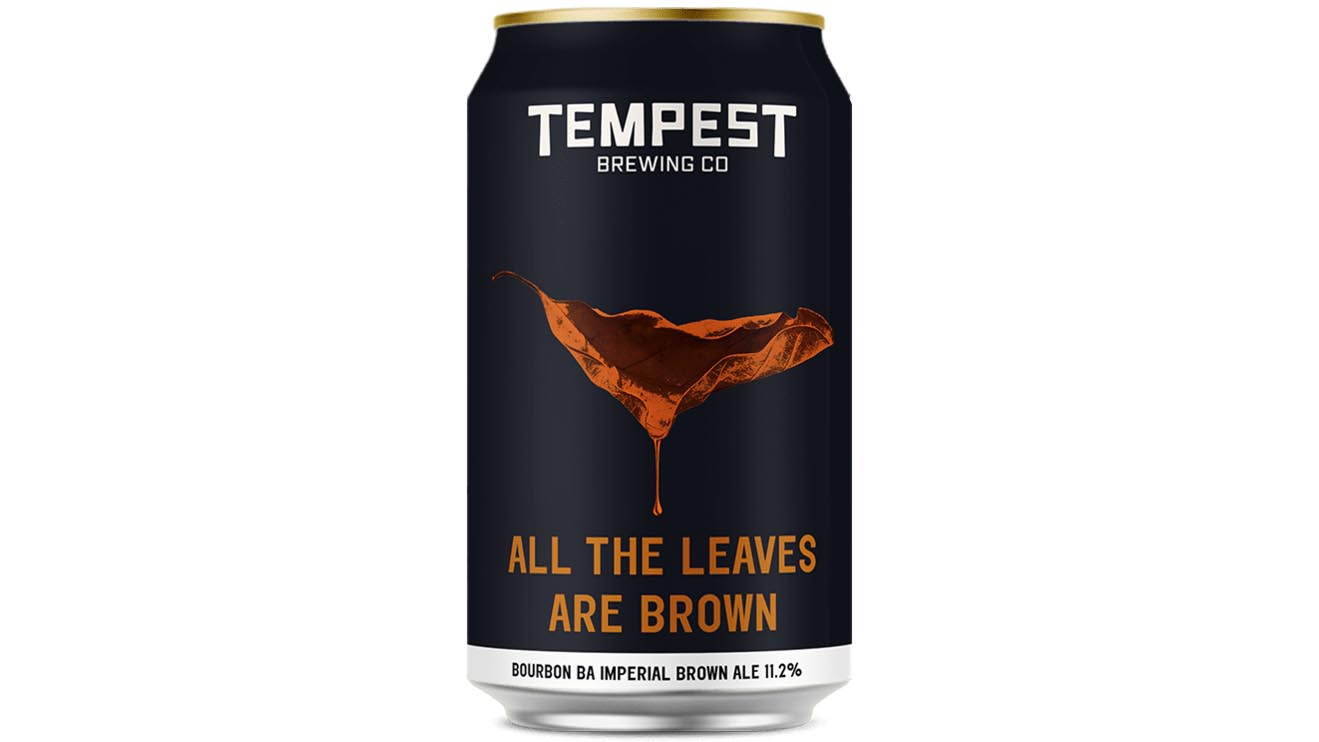Beer of the week: Runaway Brewery - Rise Like Lions
New beer, taste tested.
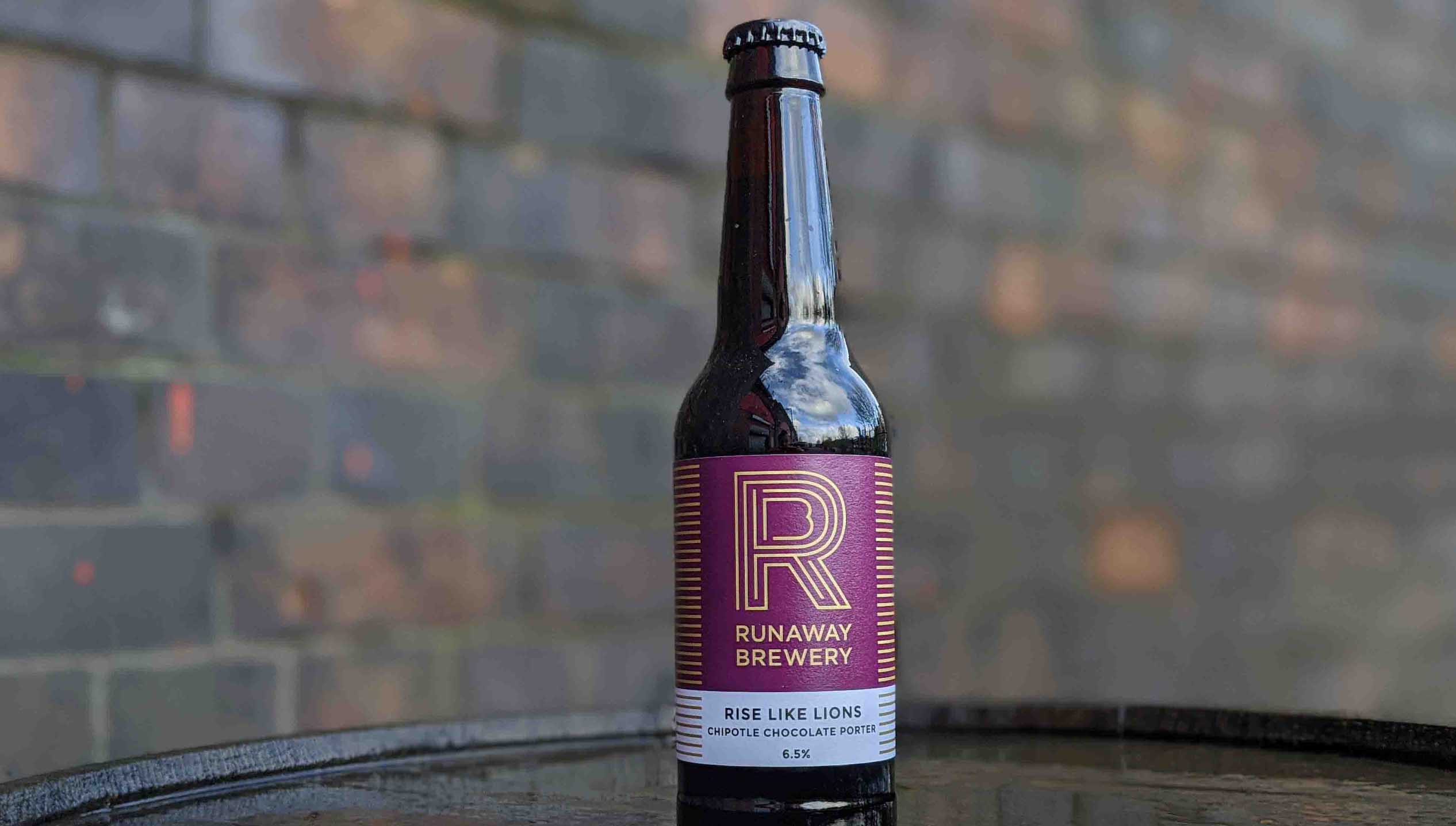
Craft beer has now solidified its place in the world of drinks and there are now, according to some sources, over 3,000 breweries in the UK alone. While we have various lists dedicated to beer, much of the scene revolves around constant new releases.
These are often one-off or annual brews that, in the case of some beers, sell out on launch day. Some craft breweries don’t even have a core range of regulars, instead preferring to make something new each time the kettle is fired up.
Craft beer has become, to some extent, a Pokémon-esque world of trying to catch ‘em all so there’s little point in adding those beers to our main shortlists only to find you can’t go and try them.
So, our Beer of the Week is a chance to keep up with the latest releases as they come and go. It’s all aboard the hype train - and this is our choice this week.
- The best craft beer, taste tested
Runaway Brewery - Rise Like Lions
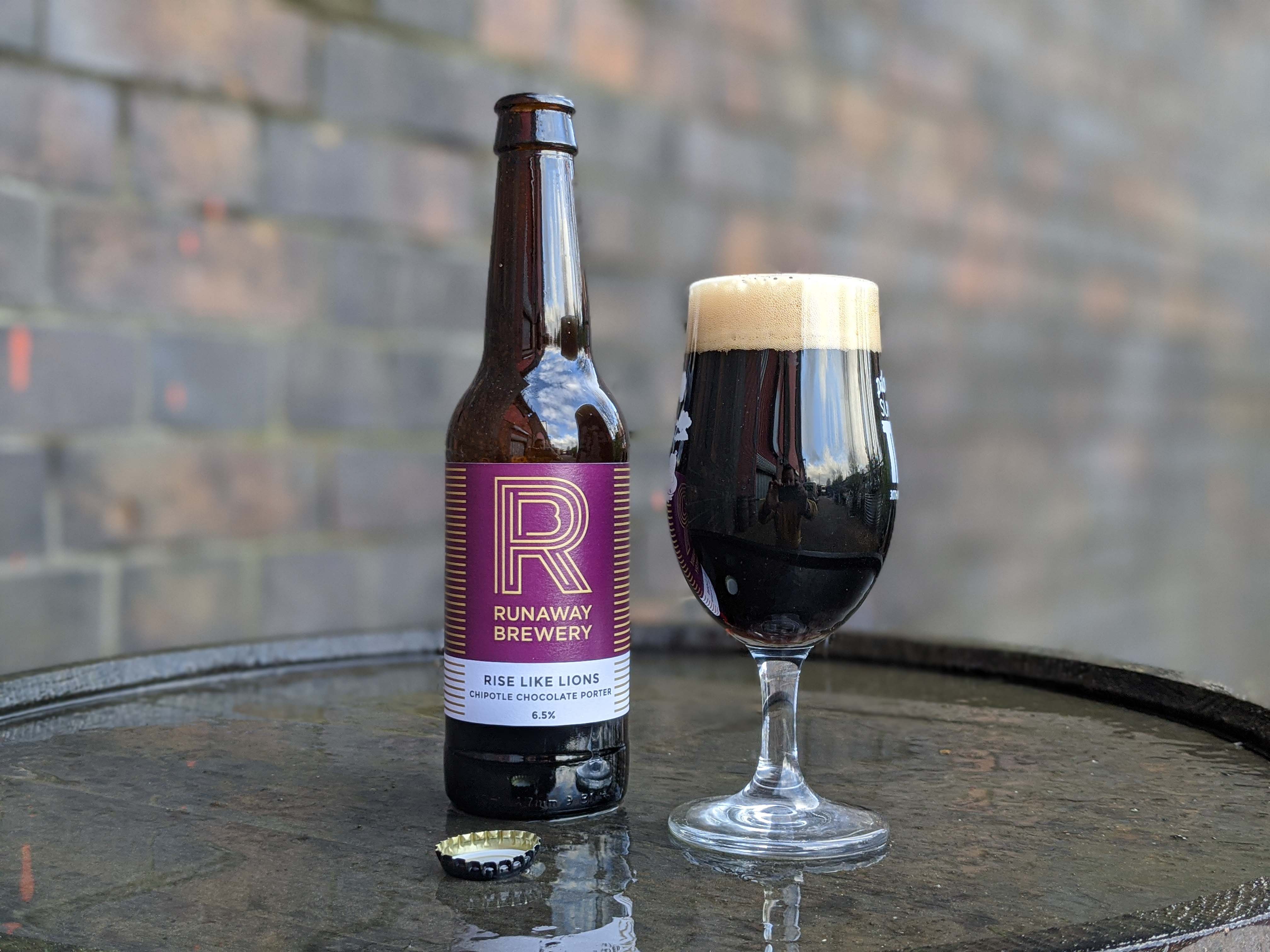
One could argue that craft beer, as in the liquid itself, is all about flavour and this week’s beer is not short on that. We love porters but this is not like any other Porter we can remember trying in the past.
Rise Like Lions was originally brewed in 2019 with Brew Wild to mark the 200th anniversary of the Peterloo Massacre. It is named after the last stanza of Shelly’s poem, The Masque of Anarchy, which was inspired by the events that too took place at St Peter's Field in 1819.
Get exclusive shortlists, celebrity interviews and the best deals on the products you care about, straight to your inbox.
While this limited edition seasonal Chipotle Porter might sound a bit daunting, it’s just as inviting as the warm glow of an open fire when you come out of the harsh English weather into a pub.
The original iteration was made with raw honey from Yorkshire and Lancashire and while that’s not present this time around, the beer is still very well balanced which is critical for its success.
Rather than spicy heat, the chipotle chilis add a smoky depth reminiscent of that crackling wood fire in the pub while you sip on a peated whisky.
This flavour is not overpowering, however. It is dominant for the first few sips but gives way to the smooth yet bitter embrace of chocolate from the cocoa nibs and sweetness thanks to the addition of vanilla.
The robust roasted malt flavour along with a rich and creamy body bring everything together into an almost hot chocolate-like experience - albeit with a welcome boozy hug from the 6.5% abv.
Rise Like Lions is delicious on its own but will also pair well with various foods including grilled meat and, although we haven’t tried it yet, we bet would work very well in cooking if you were to use it in dishes like slow-cooked beef chilli.
You can buy Rise Like Lions in 330ml bottles from Runaway Brewery’s shop prices at £3.05 each.
About the brewery
You’ll find Runaway Brewery tucked under a railway arch a short walk from Manchester’s Victoria station. They are a microbrewery where everything is made by hand in small batches and “flavour and quality come first.”
All beer is unfiltered and unpasteurised, with the majority naturally conditioned by yeast in keg and bottle. While a core range focuses on styles such as a Pale Ale and ESB, seasonal brews offer up an eclectic range of flavours including, right now, a Winter Saison and a Gooseberry Gose.
Previously on Beer of the Week...
Beak Brewery - Jurgen
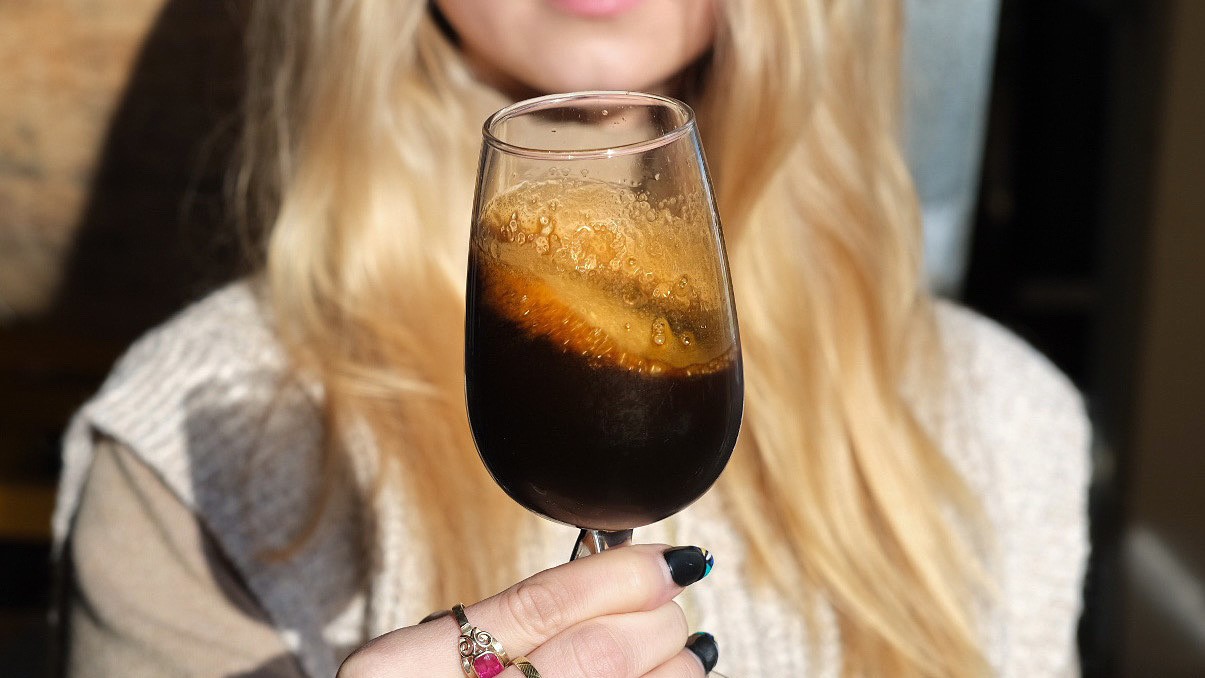
This week, we ask you to cast your minds back to the 2021 series of The Great British Bake Off and the night when craft beer fans across the UK rewound and paused the TV to see what beer Jurgen put in his beer soaked cake for German week.
Despite the duct tape to cover the brand name, eagle eyed viewers will have been able to identify Beak’s imperial stout called Oopla. This didn’t go unnoticed by the brewery and to honour the star of the show and say thank you to “one of our favourite customers”, a special beer has been brewed.
It’s named after the man himself and is particularly fitting when you consider that in Jurgen’s accent, saying ‘bake’ actually sounds like ‘beak’.
‘Jurgen’ is another imperial stout, albeit coming in at 12% rather than 10% abv and packed with flavours, some of which are similar to Oopla.
As both imperial stouts and (we imagine) Jurgen’s cakes should be, it’s rich and indulgent, pouring with a thick, viscous body. The boozy aroma of sticky toffee pudding couldn’t be more inviting if it tried.
Jurgen really comes into its own when you take a sip though, with an intense flavour of bitter dark chocolate, having been aged on a truck load of cacao nibs. That’s the dominant character but a complex malt bill adds hints of roasted coffee and bourbon, while a clever addition of salt pulls everything together with the impression of a salted caramel drizzle.
To celebrate the launch of the beer Jurgen and his band, Pam and de Femmes, played at the Beak taproom where hot fudge brownies were served for dipping. ‘Jurgen’ is available now in 440ml cans from Beak priced at £27.20 for a 4-pack.
About the brewery
Beak Brewery is based in East Sussex underneath the white cliffs of the Lewes Downs and are one of the most exciting and highly-rated breweries to arrive on the UK craft scene in recent years.
What started as a ‘nomadic project’ collaborating with the likes of North Brew Co, Burning Sky and Northern Monk is now a permanent 15BBL brewery producing a range of IPAs as well as other styles such as lagers, saisons and stouts.
8 Wired x NZBC x Fierce - Bitter Inside
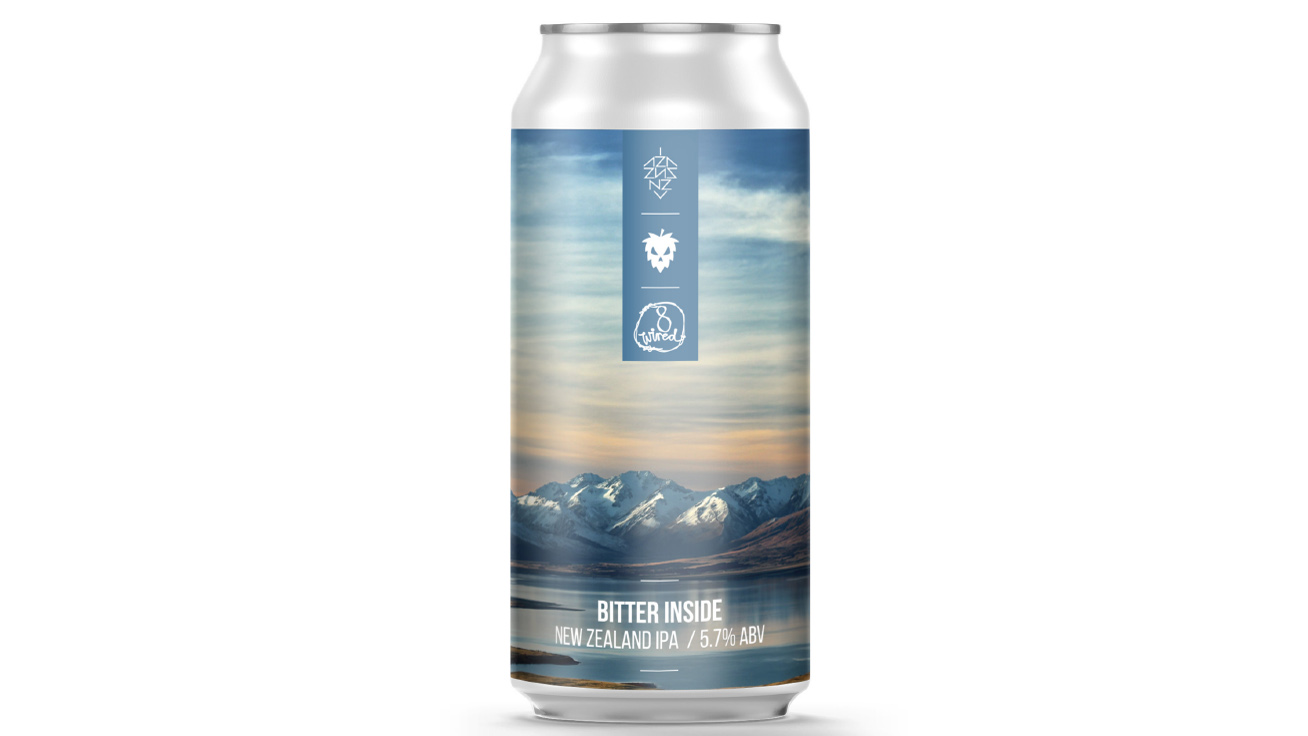
This week we have a first for the column in the form of a three-way collaboration to celebrate New Zealand Beer Month (NZBM), held annually in February.
Two breweries - 8 Wired from Warkworth in New Zealand and Fierce Beer of Aberdeen have teamed up to make the beer along with NZBC (New Zealand Beer Collective), the UK based importer and distributor of Kiwi beer as well as cider and mead.
The whole of NZBM is a celebration of the New Zealand beer and brewing scene and after being restricted to online in 2021, this year sees a mix of both digital and physical events.
There are more than 40 events happening around the UK to showcase 12 different New Zealand breweries making it the biggest NZBM yet.
Some have already taken place, of course, such as a Women in Booze online panel and various tap takeovers but there’s still plenty of time to get involved. You can check out all the upcoming events on the NZBC Facebook page.
On 23 Feb there’s an online Meet the Brewer event featuring Soren Eriksen of 8 Wired which you can join for free but you’ll get the most out of it by getting the drink-along event pack. It doesn’t include today’s featured beer but has beers such as a Coffee Milk Stout and Black IPA.
This beer, made with Fierce, (who we featured last year via their Very Big Flapjack Oatwine) is a New Zealand IPA. The ongoing partnership with Fierce promises to use 100% NZ ingredients or beers based on NZ recipes, myths and legends.
This is a showcase of only New Zealand hops, which although stunning when used correctly, are often overshadowed by big name US varieties. Despite a saturated market of hazy, pale offerings, Bitter Inside is an interesting, vibrant beer worthy of attention.
There’s a nice alcohol warmth from the 5.7% abv and a sherbet-like effervescent sweetness to begin when you take a sip. This gives way to a nice bitter sting of a finish which also ends relatively dry leaving you wanting more.
The hops - a mix of Green Bullet, Rakau and Nelson Sauvin - bring along a wide range of resinous pine and tropical fruit flavours such as passion fruit, apricot and peach. There are also subtle floral, white grape and herbal notes. This combination strikes a balance between the on-trend flavours of east coast New England IPAs and more old-school West Coast IPAs.
Bitter Inside is available from both NZBC and Fierce in 440ml cans at £4.95 and the former is where you’ll find lots of other Kiwi beers to enjoy.
About the brewery
8 Wired is a venerable brewery in NZ, having been around since the country’s craft scene infancy, starting out life as a contract brewer in 2009 while Eriksen was working for Renaissance Brewing in Blenheim.
After 5 years of contract brewery, Eriksen and team got a dedicated brewery and have become a go-to for bold IPAs as well as other styles including sours, lagers and more.
A 10-minute drive from the brewery is the Barrelworks and taproom where you’ll find 200 barrels, which 8 Wired believes is the largest barrel ageing programme in the Southern Hemisphere.
Previously on Beer of the Week...
Wilderness Brewery - Friends of Friends
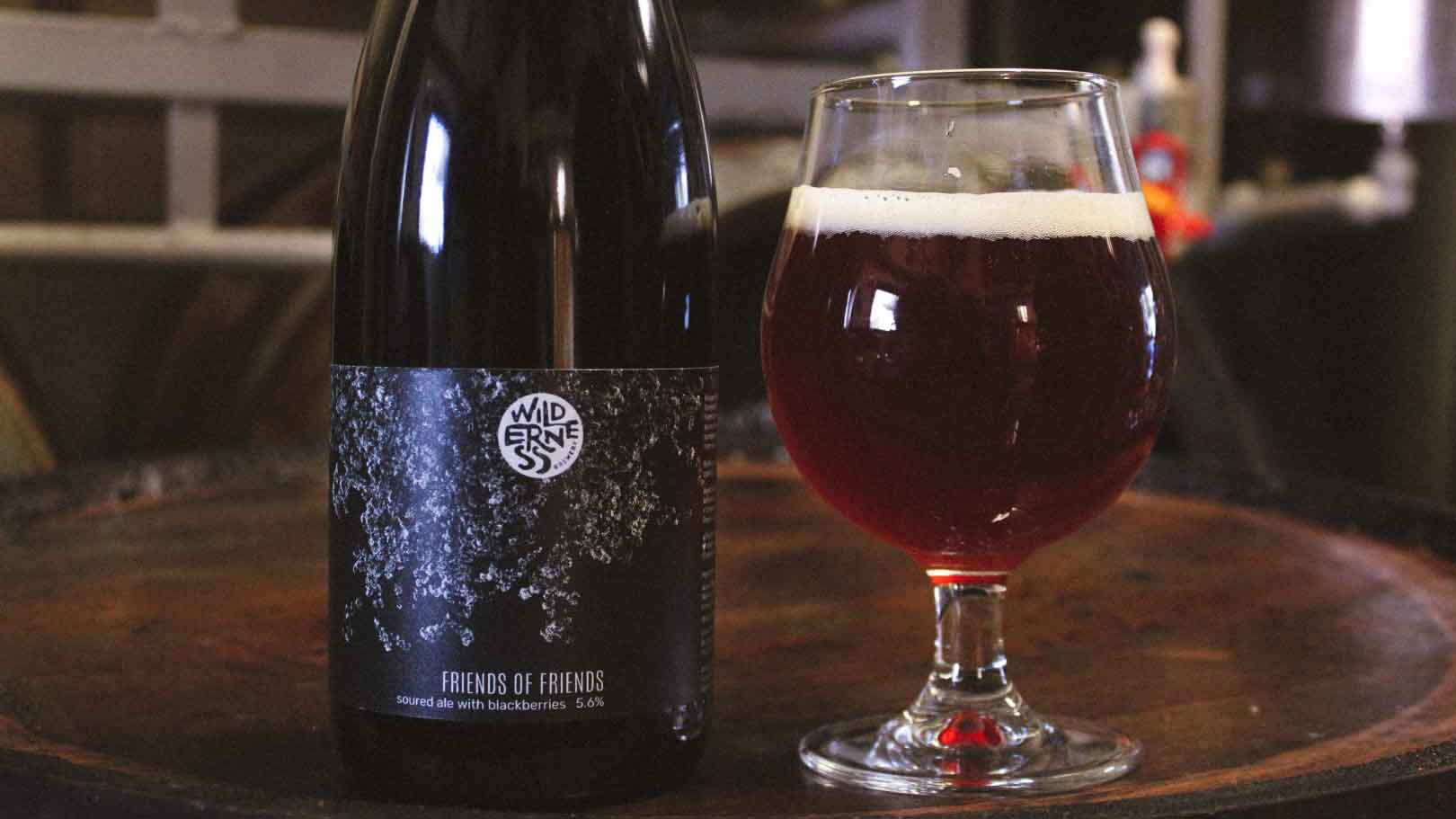
Now we’ve concluded our month of classic craft beers (see below), we’re back to the latest and greatest released from the ever moving scene. And to begin we have a new beer from a brewery you may well have never heard of.
Friends of Friends is a Belgian style pale ale from Welsh brewery Wilderness. However, pour the beer out into a glass from its heavy bottle, concealing what’s inside and you immediately realise this is no ordinary Belgian pale.
The deep plum ruby hue is an indicator of the blackberries that have gone into this beer, which have been hand picked from the brewery’s own orchard no less. There’s still more to explore though, as Friends of Friends has been aged in Tempranillo wine barrels with a Flemish mixed culture before being bottled.
What we have is a complex sour beer with an interweaving tartness from the blackberries with a hint of sherbet sweetness and a delicate balsamic flavour akin to a Flanders Red coming from the mixed culture.
A middling 5.6% abv means the beer won’t blow your head off with alcohol but also isn’t lacking in body thanks to the addition of wheat, oats and high carbonation.
Friends of Friends is available from the Wilderness shop in 750ml bottles at £17 each. The brewery also has a range of styles in cans including a continental hoppy bitter and a saison dry-hopped with Citra.
About the brewery
Set in the heart of the Welsh countryside in a small town by the river Severn, the name of Wilderness Brewery is more than apt. It’s also, as you’ve probably figured out, a reference to the types of beer they make.
A team of just two, Wilderness also has a strong focus on ethics with renewable energy, recyclable packaging, funding a nature reserve, supporting charities and an aim to offset the carbon footprint of deliveries.
St Austell - Tribute
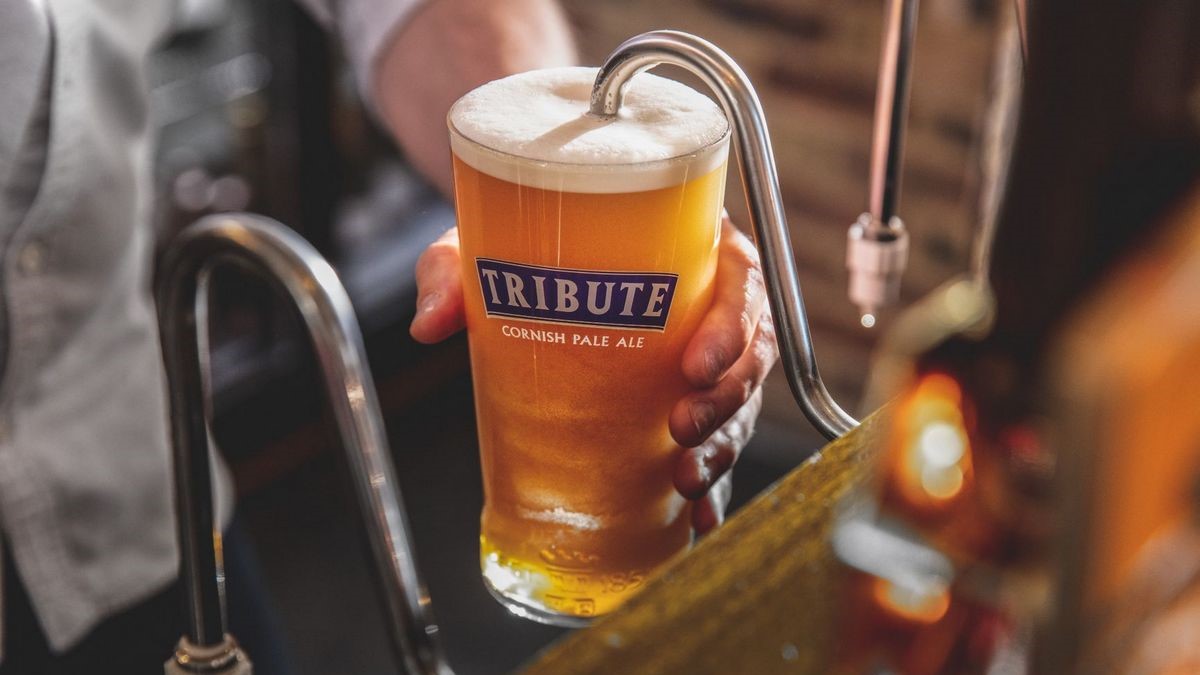
We round off our month of classic craft beers, having visited the US, Belgium and Germany, by arriving back on UK shores. The sleeper train from Paddington will carry you to within a stone’s throw of this brewery.
A short walk up the hill from the train station leads you to St Austell brewery, named after the Cornish town where it resides. While it might not date back quite as far as some of the breweries featured this month, its founding by Walter Hicks in 1851 means it has plenty of history and is now one of the oldest independent breweries in the UK.
Fast forward 148 years. It’s 1999 and Roger Ryman has arrived on the scene as the new head brewer. His first original brew is a seasonal beer called Daylight Robbery, named for the solar eclipse that took place in August of that year.
However, rather than being a one-off or even an annual brew, demand for the beer was unprecedented. Ryman said it “went ballistic” and it was relaunched as Tribute in 2001 in celebration of everyone who had helped the brewery reach its 150th anniversary that year.
It was only a year later that the 1,000,000th pint of Tribute was made and it has been St Austell’s flagship beer ever since. Over the last 20+ years, the beer has achieved numerous awards and gone through various rebrands.
It was voted Champion Beer of Cornwall at Cornwall CAMRA beer festival in 2004, hit supermarket shelves in 2005, was packaged into cans in 2010 and became the ale option on British Airways flights in 2016.
Approachable yet flavoursome
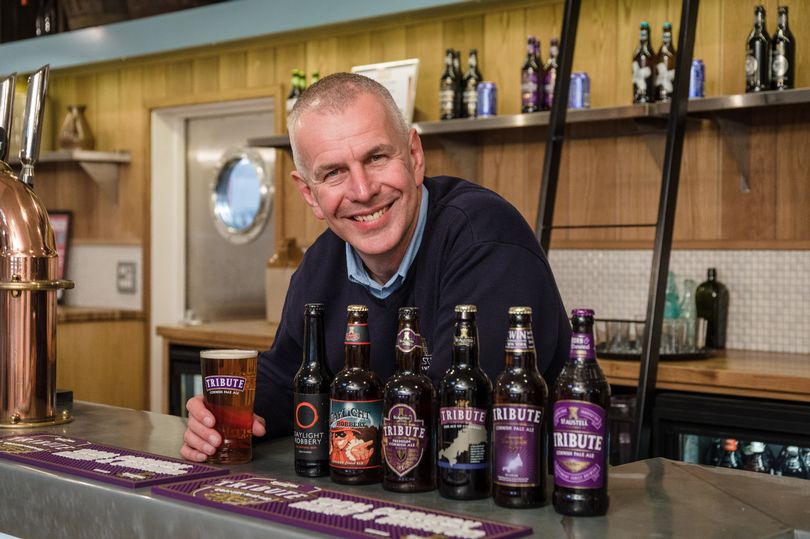
So to the beer itself, which is made with Cornish Gold and Maris Otter hops along with Fuggles, Celeia and Willamette from both Slovenia and the US.
It pours an inviting golden amber, almost marmalade in hue, and perhaps we’re just associating it with many holidays in the West Country, but it smells of fresh Cornish air, fields of crops and ripe fruit.
The latter is less of a figurative tasting note as the hops really do give Tribute a soft peachy flavour along with orange and grapefruit zest. This is not aggressive, though, and is nicely balanced with the sweet honeyed malt.
This is just about as approachable as beer comes, and at 4.2% is perfectly sessionable for an afternoon in the beer garden, whether you're on holiday in sunny Cornwall or not.
You can get Tribute in bottles and cans, but it’s best experienced when served via cask and although St Austell is one of the more southerly breweries in the UK, it is traditionally served through a sparkler.
This small attachment to the nozzle, more commonly used in the North of England, forces the beer through tiny holes, giving it a thick and creamy head.
Sadly Roger passed away in 2020, but Tribute couldn’t be a better named beer to honour his legacy.
Augustiner-Bräu - Helles
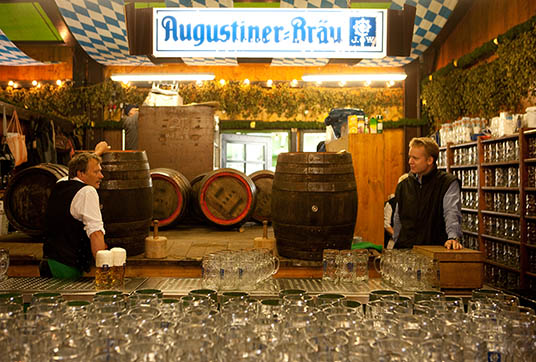
For our third classic beer, we hop the Belgian border to Germany and head to the free state of Bavaria with its rich brewing history. For this week, it could only be a lager.
While the beer world is dominated by pilsners, the helles is something of an unsung hero of the lager sector. The style was created by Bavarian brewers who wanted to take on the popular Czech pilsners such as Budvar and Pilsner Urquell.
And we’re in good hands with Augustiner-Bräu which, having been founded in 1328, is the oldest independent brewery in Munich. For almost 500 years, Augustiner beer was made in a monastery by monks and they were given a tax break due to the high quality of the beer.
In 1803 the monastery was taken over by the state and the brewery was privatised. It was relocated to Neuhauser Straße in 1817 because the monastery was in a state of disrepair.
It was later acquired by brewer Anton Wagner who set up a modern building on Landsberger Strasse where the brewery was moved to in 1885. A year later the original site on Neuhauser Straße was turned into a restaurant with a beer hall which you can still visit today even though it was damaged in World War II.
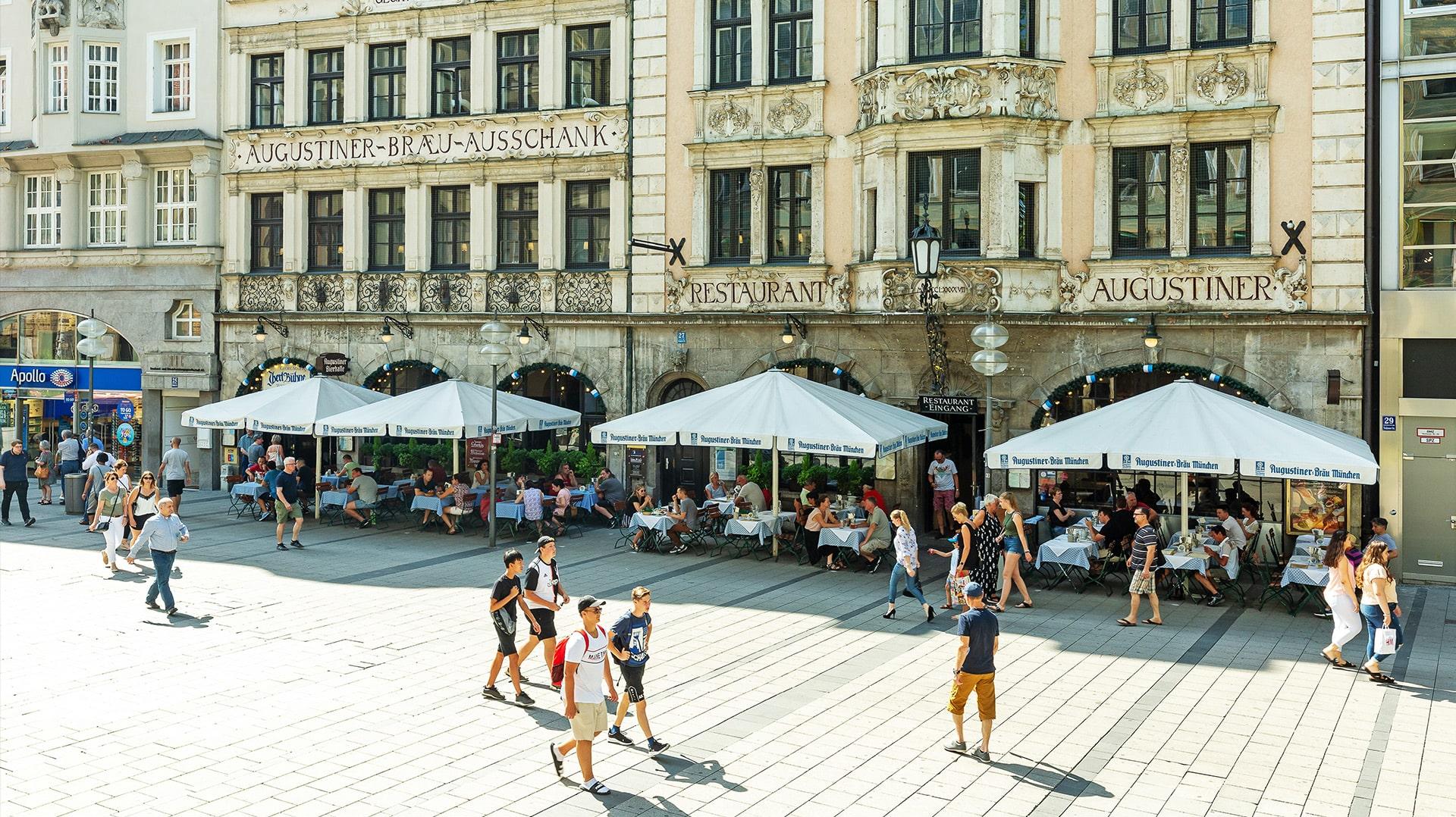
Of course, you can find Augustiner at the world-famous Oktoberfest where, since 1987, it has been the only one of the six Munich breweries at the festival that only taps its beer from wooden barrels.
Today we’re cracking open a bottle of the famous Lagerbier Hell, aka Helles, which translates to pale. So it’s no surprise that what flows into the glass is a straw-coloured, highly carbonated beer.
It comes in at a middling 5.2% and is brewed to the Reinheitsgebot, a German purity law stating that beers must be made with just water, barley, hops, and yeast. You’ll find no adjuncts like ice cream cones or digestive biscuits here.
Flavour without fuss
Like those Czech pilsners the helles originally imitated, the beer is more subtle and easier going than a German pilsner which is aggressively hopped. So, the bitterness is much more reserved, allowing the malts to take an equal role.
There’s a delicious comforting flavour of light biscuit and golden flour-dusted bread crust. It’s full-bodied thanks in part to the carbonation and the malt profile is complimented perfectly with noble hops bringing lemongrass, floral notes and hints of citrus zest.
Make sure you pour with enough vigour to create a quintessentially large and foamy German head to get the most from those hops.
Everything is delicately balanced and the beauty is that you don't need to think too much about this beer. It’s one to be drunk for the sheer enjoyment of the way it’s just so drinkable and refreshing.
You can crack one at just about any moment and it will deliver time and time again, whether you’re just getting in the door from a long day at work, playing board games with friends or hosting a fancy dinner party.
Orval - Orval
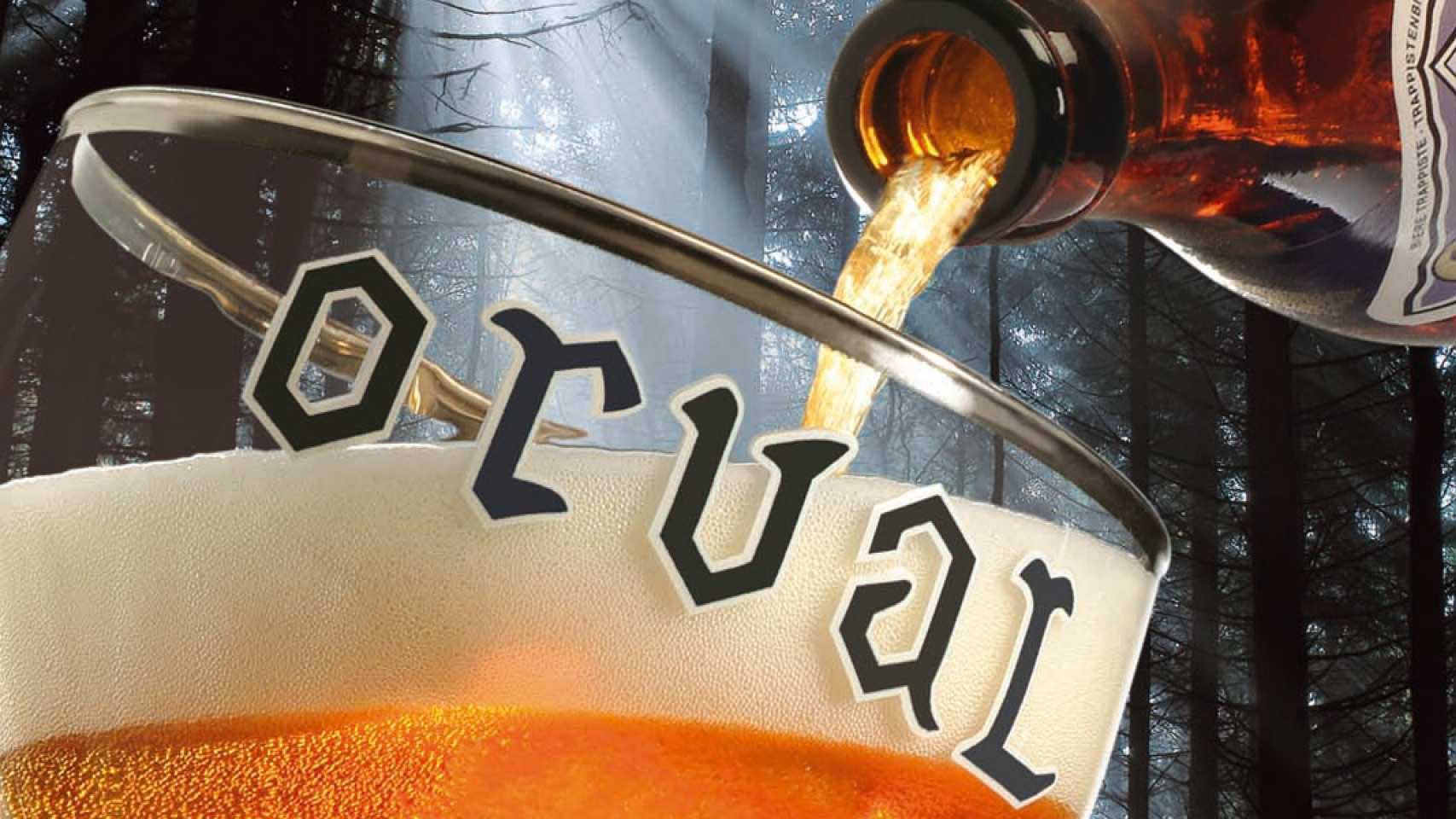
Continuing our month of classics, we travel over 5,500 miles from the US west coast to Belgium. And when a brewery only makes one beer, it’s got to be good right?
Okay, Orval does make Orval Vert, at a lower 4.5% abv rather than 6.2%, but it’s exclusively available on keg in the café near the monastery. So unless you’re a local or happen to be visiting, Orval is simply Orval like a self-titled album.
Located in the south of Belgium near Florenville, brewing at the Orval monastery dates back hundreds of years but the current brewery was built in 1931 to replace the original foundry which was set up to finance repairs following damage from the war.
The monastery was already producing bread and cheese and also employed lay-people. Although it opened almost 100 years later than Westmalle, it is one of only five breweries in Belgium that carry the Authentic Trappist Product label.
While there are plenty of iconic beers that come from these breweries - including Westmalle Tripel and Rochefort 10 - Orval is unique for a number of reasons beyond the fact that the others all make at least three different beers.
For starters, the curvy bottle is reminiscent of a wooden skittle pin with its diamond-shaped label featuring a fish with a ring in its mouth. As legend has it, the widow of the Count of Chiny, Mathilde de Toscane, lost her ring into a spring but a trout returned it so she donated the necessary funds for the building of an abbey.
The other things that make Orval unique are the fact that the beer, unlike other Trappist brews, is dry hopped - at the time an English method which John Vanhuele, one of the brew team brought over having lived in Blighty for a number of years. It is also made with Brettanomyces, a wild yeast strain.
After primary fermentation, Orval is transferred to ‘holding tanks’ to condition for a couple of weeks where the yeast and hops are added. It then goes through a third stage of fermentation in the bottle with new sugar and yeast and is only released after two months of resting.
To age or not to age?
All of these processes make Orval particularly interesting to the senses but the bottle fermentation means the profile will be different depending on how young or old yours is.
A fresher bottle will present more of a hoppy bouquet with earthy and spicy tones. However, an aged bottle will see this fade and the funky barnyard flavours of the Brettanomyces dominate, plus the beer will become more dry.
This interplay of hops and yeast esters over time is why the ‘perfect’ age for Orval is something of an endless debate. The best thing to do is buy a batch of bottles and drink them at different stages of aging to see which offers up your favourite character.
Sierra Nevada - Pale Ale
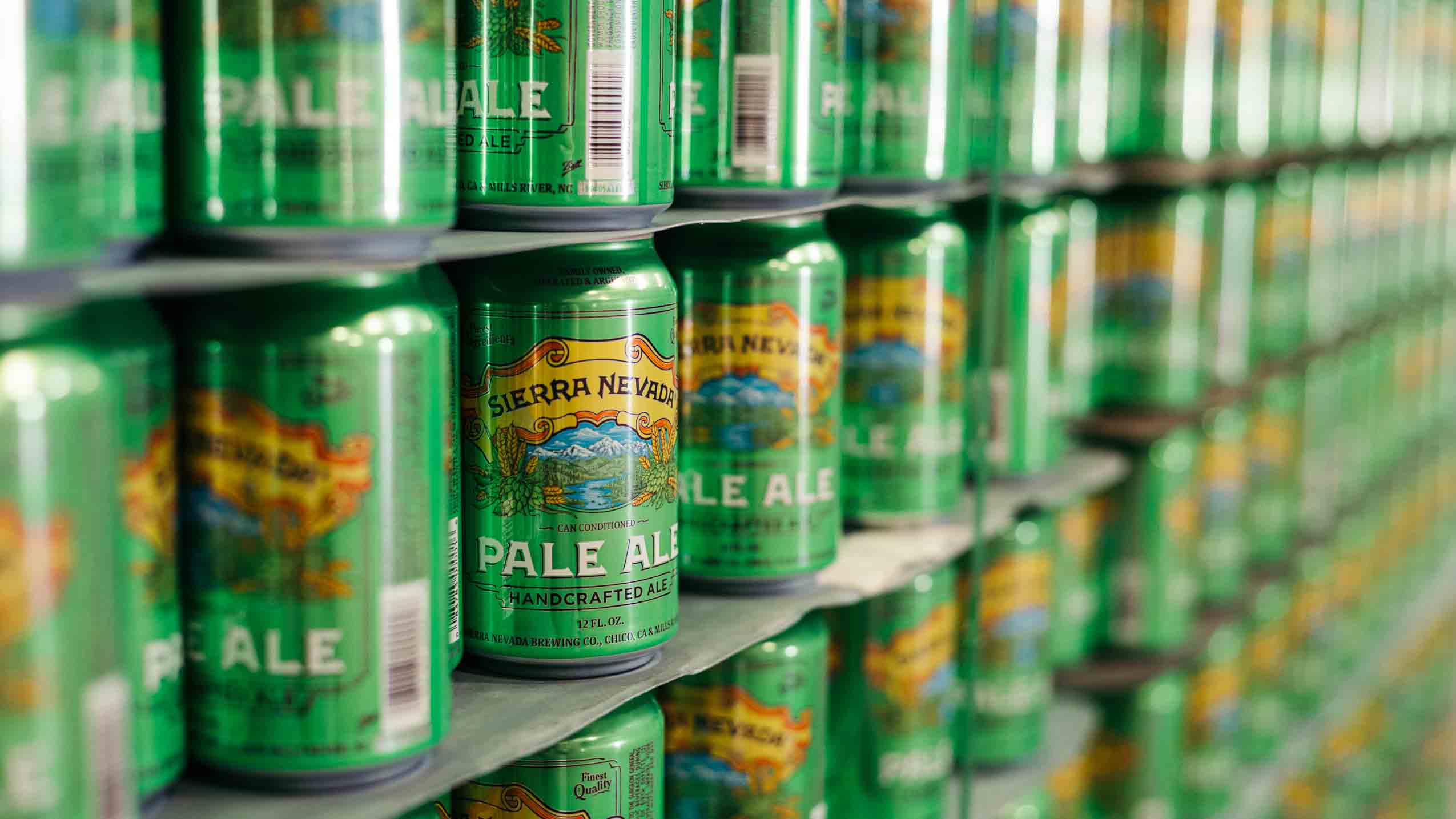
So far, our beer of the week column has focused on new releases, fresh off the hype train. However, for today and the rest of January, we’re looking at four classic all-time great beers starting with one that really needs no introduction.
Sierra Nevada’s Pale Ale, for many, is the beer that springs to mind as the iconic craft beer, with its highly recognisable green label featuring the quintessential scroll logo. It still bears the design to this day and although the brewery has tweaked it many times over the years, it still retains the heart and soul of the original.
Let’s rewind for a minute though, as Sierra’s roots go back to 1969, when founder Ken Grossman bought his first homebrew kit - which, still being a teenager at the time, he hid from mum.
Three years later he moved from LA to Chico, California where he started The Home Brew Shop in ‘76. It was only four years after that Ken’s brewery, built from scratch and named after the mountains he and friends had spent so much time exploring, made its first beer.
That first beer was actually a stout, made in 1980, but in November of that year Ken created Pale Ale. After just 10 batches the recipe was perfected and this beer helped drive the craft revolution in America following a period of decline caused by prohibition.
You can largely put its success down to the new hops available from the now famous Yakima valley. Ken had previously driven there in 1977 to convince the growers to let him buy hundreds of small bags of ‘brewers cuts’.
One of these new hop varieties was Cascade, named after the mountain range near Yakima, and what it did for beer was like the introduction of Technicolor to the film industry. Its vibrant pine and citrus characters gave Pale Ale the injection of flavour that drinkers were craving.
A special pale ale
If you haven’t tried it before, the beer is an attractive red-gold amber hue and the aroma and flavour from the Cascade hops is exactly as advertised. What’s so special about Pale Ale is the perfectly balanced recipe, coming in at 5.6% and a middling bitterness of 38 IBUs (international bittering units) balanced with sweet malts.
It’s a beer for any occasion and the recipe isn’t some heavily guarded secret, you can find it on the Sierra website if you’d like to try your hand at making your own. And it’s easy to get hold of some to compare with your homebrew effort, from stockists such as Sainsbury’s (albeit the 5% ‘draught style’ version) or Sierra’s own Cascade Club.
It’s no wonder that it helped kick-start the craft beer movement in America and over 40 years later, the beer is still highly regarded and drunk around the world. Perhaps what’s more impressive is the fact that Sierra Nevada remains independent - somewhat of a rarity for a brewery of such popularity and success.
Five Points Brewing Co - Old Greg’s Barley Wine
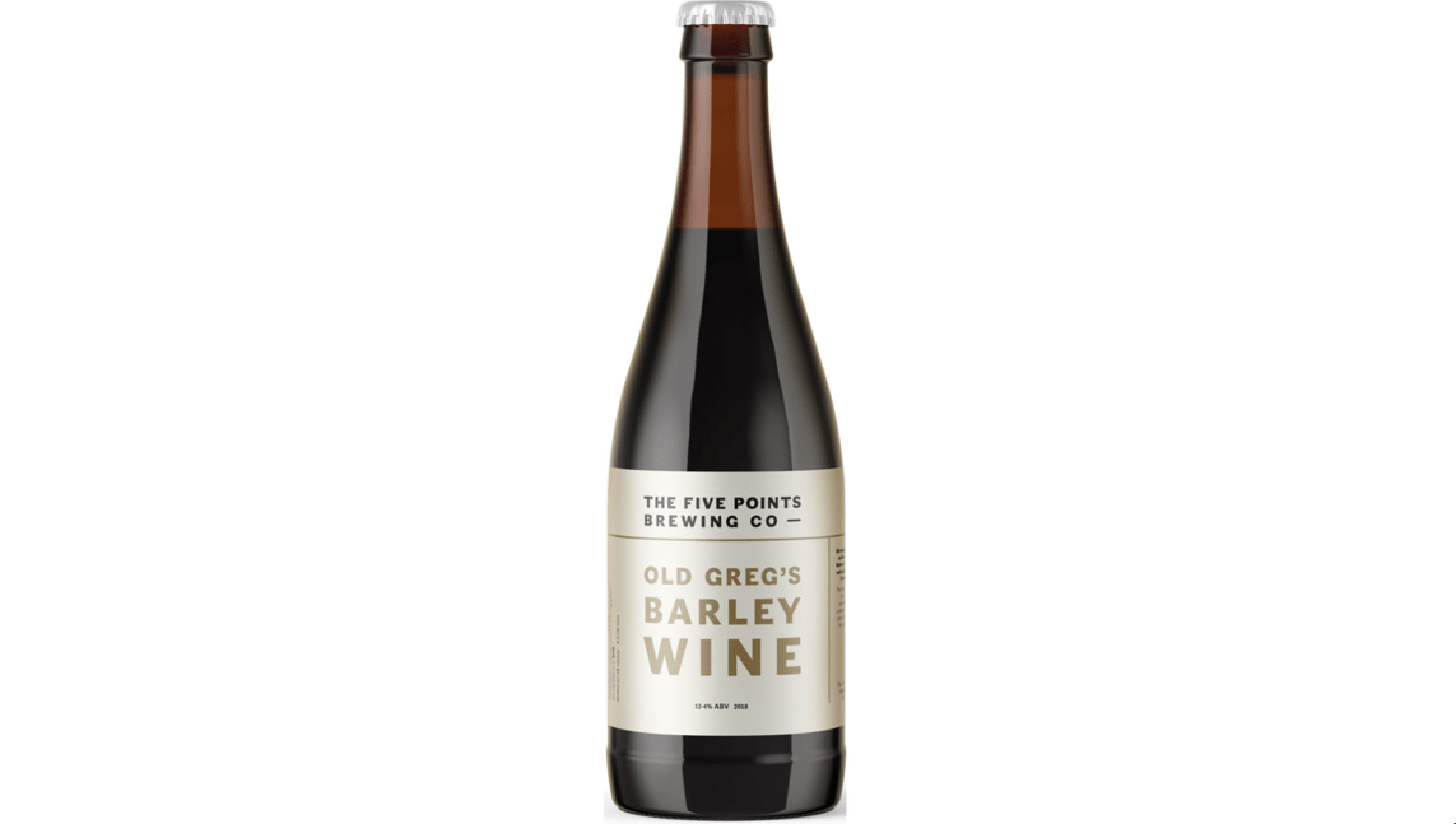
Cheese and wine might be traditional for New Year’s Eve but what if you want to have a beer instead? Well, our beer of the week is just the ticket you need.
We’re big fans of Five Points and Old Greg’s Barley Wine feels like an unsung hero of the portfolio, which includes Railway Porter as featured in our best craft beer ShortList.
The beer is originally a homebrew recipe of Greg Hobb’s, the head brewer at Five Points, and it’s particularly fitting for it to be the beer of the week today as it is brewed annually on New Year’s Eve.
Old Greg’s is an English-style barleywine and as such uses exclusively English hop varieties including Target, Challenger and East Kent Goldings. Each vintage is aged in the bottles for a year before being released and, like Anchor Christmas Ale, the recipe is slightly different each time Greg goes to brew it.
At the moment it’s the 2018 vintage that’s available to purchase and it is quite possibly the best yet, or at least it is after three years of maturation. This golden nectar is lightly carbonated and the sugary, boozy aroma is very inviting.
Take a sip and you’re greeted with an intensely fruity flavour of apricots and plenty of honey and vanilla sweetness, too. There are also nice hints of spice and marmalade rounding things off.
At 12.4% abv the alcoholic warmth makes itself known so your cheeks will be glowing in no time. It’s delicious to sip alone but if you don’t have it with a cheese board and perhaps some fruits like apples and pears then you haven’t fully experienced how good this beer can be.
Old Greg’s Barley Wine is available in 660ml bottles from Five Points for £12. Grab it while you can and also look out for the 2017 vintage to appear, which has been barrel-aged giving it more of a Flanders red edge. For 2019, Five Points brewed a tripel instead and that’s a beer we’re keenly looking forward to when it arrives.
About the brewery
Five Points has been brewing in London’s Hackney since 2013 and was the first brewery in the UK to be an accredited Living Wage Employer. The name comes from the nearby railway junction and originally the brewery was located in a railway arch under Hackney Downs station.
Following two rounds of crowdfunding, Five Points has now fully relocated a mile down the road where they previously leased some warehouse space. You’ll now find a shiny new taproom there complete with freshly served tank beer piped in directly from the brewery.
St Bernardus - Christmas Ale
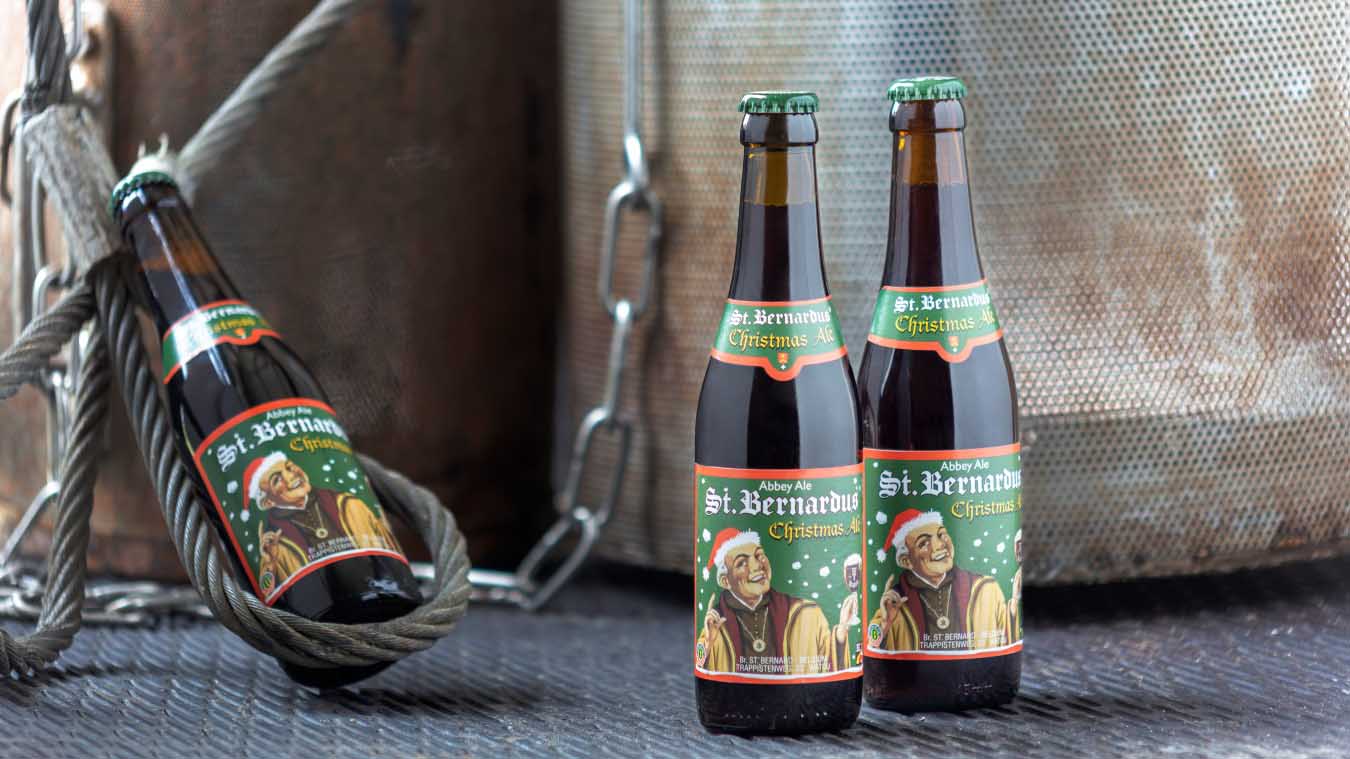
Beer of the week falling on Christmas Eve meant we didn’t have to think too hard about what style to feature today and this one is quintessential of the genre.
Modern Christmas beer has many roots in Belgium, although not from the Belgian breweries. It appears that around the late 1800s and early 1900s, imported beer, typically strong dark and rich scotch ale by breweries such as MacEwan’s, was simply marketed as ‘Christmas’ (in English) and patrons would only be able to get it for a short period of time.
It was only a matter of time before Belgian breweries were making their own Christmas beers and nowadays they pretty much all do it. Chimay Grande Réserve (aka Blue) was originally launched as a Christmas ale in 1954 and N'ice Chouffe’s label features a gnome wearing a kilt for a reason.
St Bernardus’ festive beer might not be a scotch ale as such, but this 10% quadruple has some similar traits. It pours a reminiscent colour, a dark and heady brown but the flavour is far more complex.
While there are distinctive fruity esters from the yeast, they are more reserved than many Belgian beers. St Bernardus isn’t forthcoming with what goes into brewing the beer but you can expect an intricate array of flavours including chocolate, coffee, caramel, winter spice, dried fruits and perhaps a hint of liquorice, too.
There’s a lot going on and while it’s great to drink on its own, you can pair it with food like roasted game and chocolate desserts.
A fun fact about the brewery’s Abt 12, another 10% abv quadruple, is that the monk on the label can occasionally be seen winking. This special label appears on every 1000th bottle coming off the production line.
The snow and Santa hat on every Christmas Ale label might not be rare but the festive spirit should be for everyone and you can buy it in 330ml bottles at around £4.50 or larger 750ml bottles for around £12.
About the brewery
Located in Watou on the border with France, St Bernardus was originally where French Trappists took refuge and started making cheese. Later these monks left and Evariste Deconinck took over the dairy and was invited by the Trappist monks at Westvleteren to produce beer under license.
This lasted for 60 years, ending in 1992 when the brewery began marketing beer as St.Bernardus. It was a rocky start but a change at the helm in 1998 was the catalyst needed and in the last few years, the brewery has opened a new wing and, among other things, a 360-degree rooftop bar for visitors.
Signature Brew - Bells End
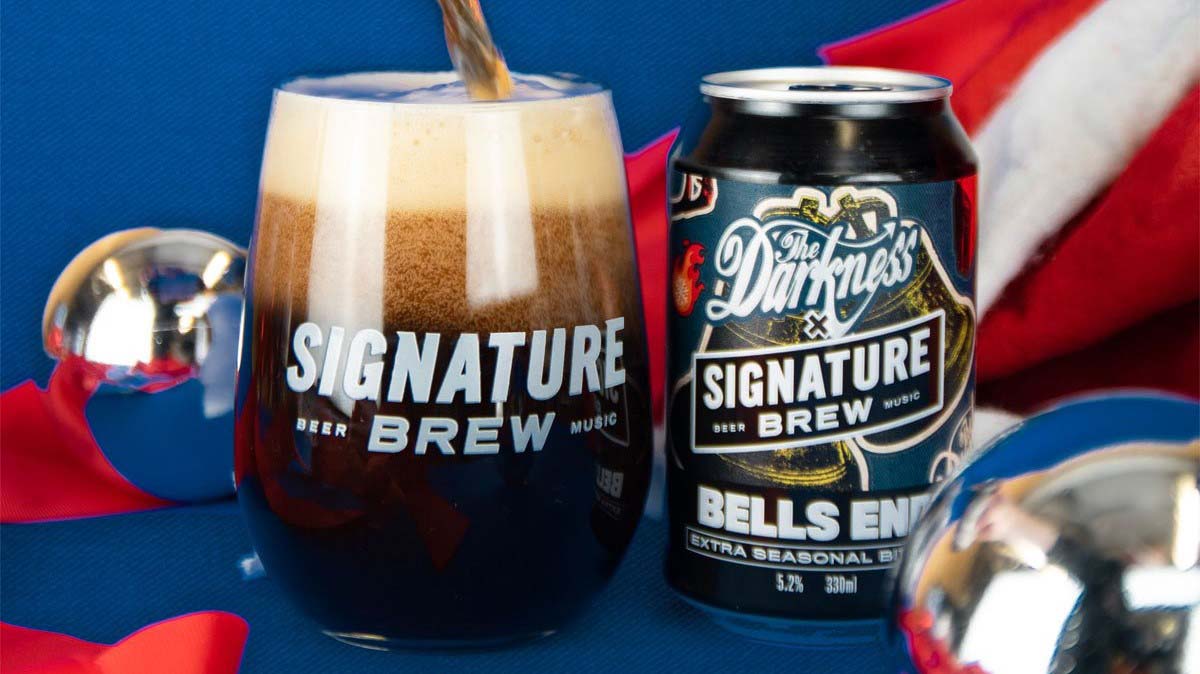
This seasonal brew didn’t quite arrive out of the fermenter in time to be part of our best Christmas beers ShortList, but we couldn’t not feature SIBA’s Brewery Business of the Year on the column.
Eagle-eyed readers will spot that the name of this beer matches a popular Christmas song from rock band The Darkness. ESB normally stands for extra special bitter, but for this yuletide tipple it means extra seasonal bitter and it’s back for its second coming.
The beer inside doesn’t have additions of fruit and spice like a traditional beer but Dan Hawkins, lead singer of The Darkness, said “We wanted a beer that’s punchy and drinkable at the same time.”
And that’s certainly the case as the beer is perfectly balanced. There are welcoming rich malt flavours, some dark and roasted with others nutty or bready. Bells End also offers up hints of dried fruits and spices giving it that seasonality.
It’s 5.2% abv which is a little lower than some ESBs but it’s got enough alcoholic oomph to warm the cockles while remaining pretty sessionable. This is helped by the smooth and slightly creamy body which leaves us craving much bigger cans than 330ml.
Bells End is available from the Signature shop for £3.25 per can or you can get the Bells End edition of the Signature Pub in a Box for £30. This includes four cans of the beer, four core range beers, a glass, snacks and extras like a limited edition The Darkness print, beer mat and quiz.
About the brewery
Signature first popped up a decade ago and from the off has had a strong focus on the connection between beer and music. The team is made up of musicians and music fans with one aim being to improve the quality of beer available at gig venues.
The brewery has made collaborations with a large number of bands and artists such as Frank Turner, Millencolin and Sports Team as well as a whole series with drum and bass label Hospital Records.
Saint Mars of the Desert - Mice
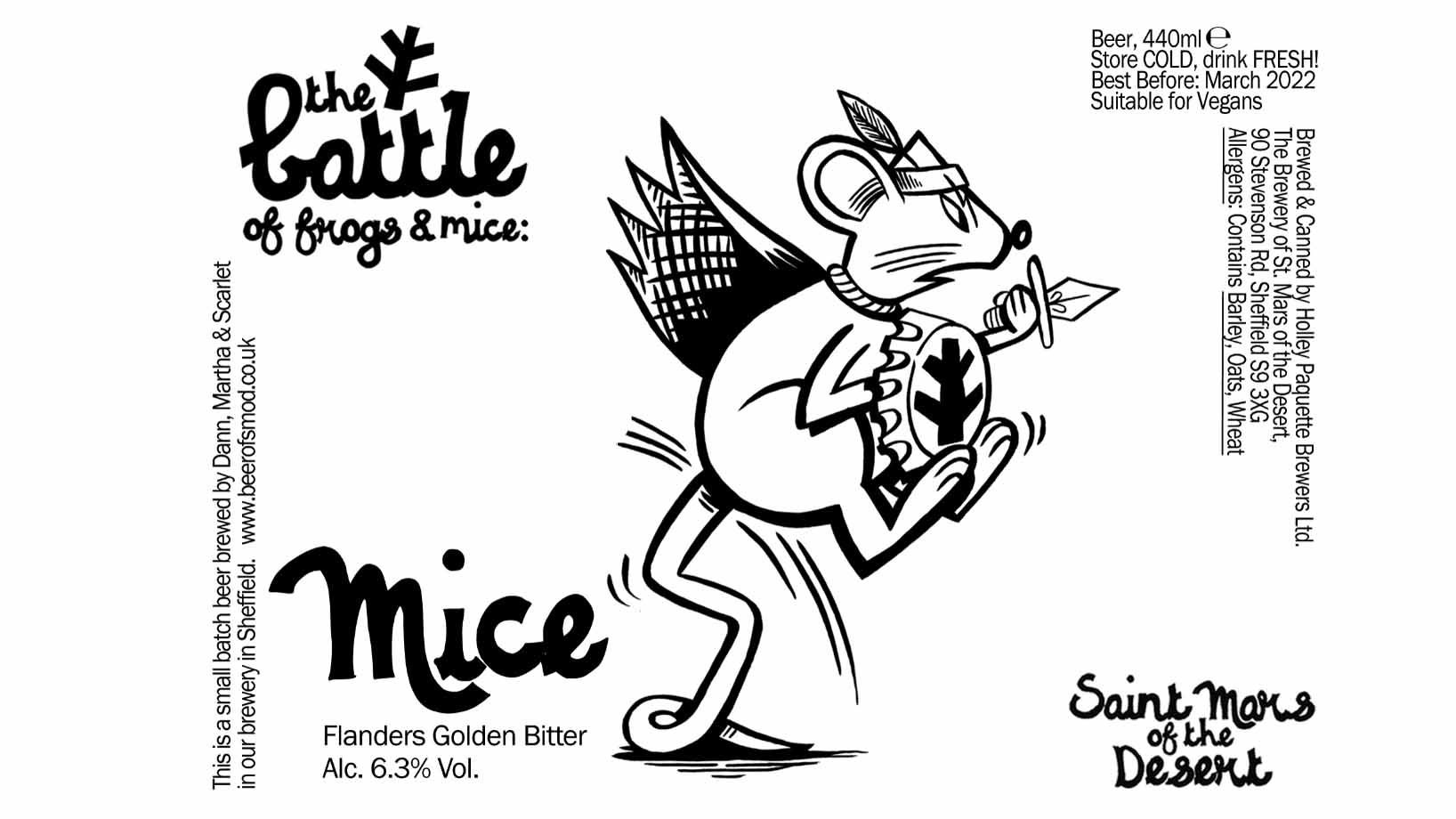
We’ve been wanting to feature Saint Mars of the Desert on this column for a while and a flanders golden bitter, being somewhat unusual, felt like the perfect opportunity. We’ve chosen this beer in the name of variety but if co-founder Dann Paquette had his way, the label wouldn’t have a style written on it at all.
Having been brewing professionally since 1992 and working at more breweries than you can count on both hands in both New England and the UK, Paquette was there before the words ‘craft beer’ were ever stamped on a label.
In a blog post, he recalls discovering Oerbier by De Dolle Brouwers in Boston at a time where the industry felt stale and “a bit cookie-cutter”. It didn’t mention a style, merely the 9% abv and “Nat & Straf” translating to ‘wet and strong’ in English.
Furthermore, it tasted “strong and tart, a bit like candy and massively dark with cherry red hues but without any roasted character or obvious sugar”. He wondered if perhaps it was a lucky infection, but a second bottle and a trip to Belgium not long after proved that it wasn’t.
This De Dolle philosophy of branding would “set us free from the inauthentic world of “craft beer” and into a space of our own” adds Paquette, while conceding that it wouldn’t result in sales in the modern world.
However, the influence of these Belgian craft breweries that were first founded in the '80s and '90s were a huge inspiration to Paquette and many other brewers out there. So, in both celebration and tribute, Saint Mars of the Desert have created a two-beer mini-series called The Battle of Frogs & Mice, named after an ancient tale of a pointless struggle.
Mice is one half of the duo and this golden bitter comes in at 6.3% abv. We’ve almost run out of time for tasting notes but you don’t need many to get an idea of how delicious this beer is. An initial pronounced bitterness quickly gives way to fruity sweetness and piquant Belgian yeast esters followed by a lingering dry finish.
Although this is our beer of the week, try and find Frogs as well. This ‘Special Brune’ as Paquette reluctantly calls it, comes in at 8% with a strong, dark and complex character.
About the brewery
After relocating from America, Dann and Martha have realised their dream of starting a brewery and have done so in Sheffield. The pair have recently been joined by Scarlet who is also studying an Apprentice Brewing Program at the University of Nottingham.
Saint Mars of the Desert, or SMOD, has a 10 hectolitre brewery and Yorkshire’s only coolship, which all the beer passes through for hopping and settling. You will find them specialising in koelship IPAs, stingos (a traditional Yorkshire style) and mixed-fermentation pale ales, but they’re also no stranger to lagers, brown ales and, as we’ve discovered, Belgian classics.
Full Circle Brew Co - Dooper
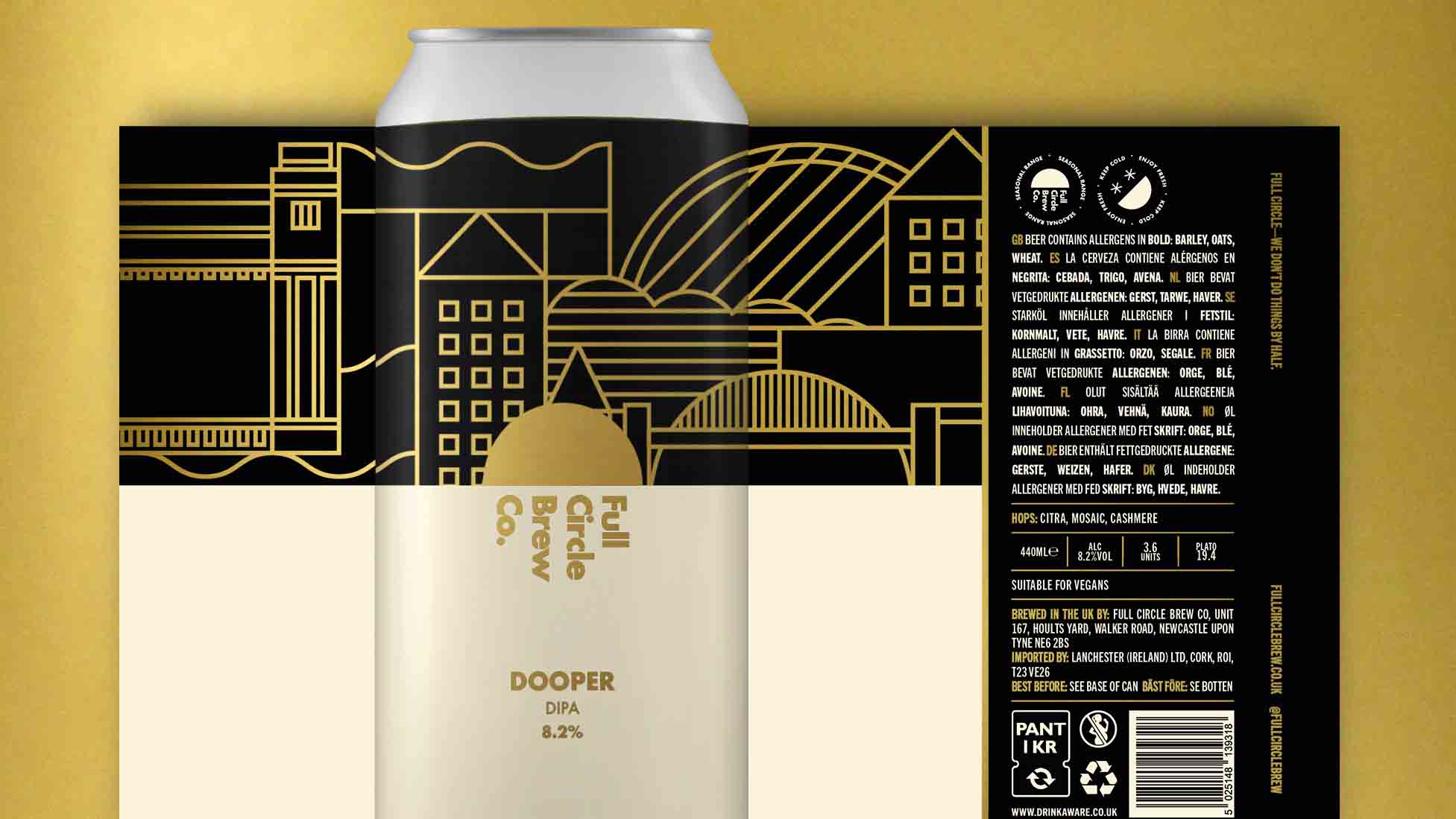
This week we’re celebrating yet another birthday in the UK craft scene, although Full Circle is a baby in comparison to Track and Fyne Ales.
Full Circle are two years old and that means Dooper is back. The beer is an annual release to mark another 12 months of brewing and, being a Double IPA, it breaks our recent run of darker beers.
Dooper is a double version of Full Circle’s flagship IPA, Looper. That version is 6.4% abv but Dooper takes the beer to 8.2%.
Although amped up, the brewery retains the drinkability of Looper which is a difficult task when doubling an IPA. A thick and soft body is largely the reason for this, thanks to plenty of wheat and oats, along with an intensely fruity aroma.
If you’re a fan of so-called ‘juice bombs’ then this is a beer for you. Heavily hopped with Citra, Cashmere and Mosaic, Dooper has a medley of flavours going on with juicy mango, pineapple, peach and melon backed up by citrus notes of lime and grapefruit as well as some pine.
At 8.2% abv, the beer is certainly boozy but it’s not so much that it dominates and the Dooper remains an extremely drinkable DIPA. You can buy it now in 440ml cans for £6.40.
Dooper arrives alongside some special barrel aged beers to celebrate Full Circle turning two. Year of No Light is an imperial stout aged for 12-months and is available in both Cognac and Rye editions, while Summer of 86 is a peach and apricot saison blended from Riesling and Pino Gris barrels.
About the brewery
You’ll find Full Circle Brew Co in Newcastle, a stone's throw from the river Tyne. The brewery gets its name due to owner Ben Cleary’s grandparents being in the pub and beer trade, while his parents were in the wine business.
The brewery makes a wide range of styles from American pale ales to imperial fruited goses. You’ll find 20 lines of cask and keg at the taproom overlooking the brewery.
Track Brewing Co - If I Had A Soul
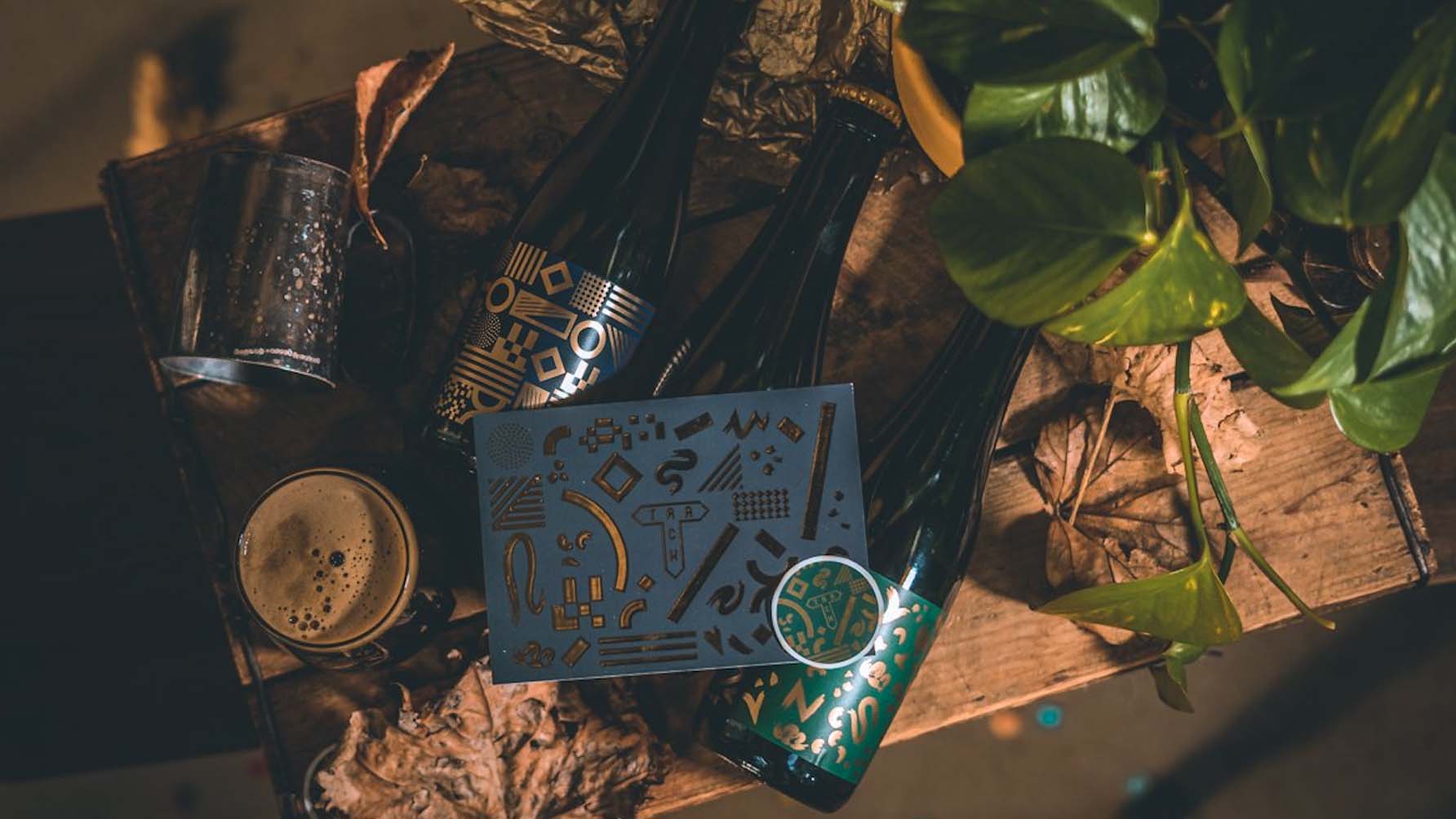
This week we are celebrating yet another brewery birthday and heading hundreds of miles south from the Scottish highlands to a trading estate in Manchester where we find Track Brewing Co.
And what could be more fitting over the Black Friday period than an imperial stout? If I Had A Soul is one of a set of three very special barrel aged impys to celebrate Track’s 7th birthday. All three are collaborations with other breweries with this beer getting the input of Canada’s Collective Arts.
To say If I Had A Soul was a chocolate and banana imperial stout aged in Jim Beam barrels would be far too simple an explanation.
Not only has it spent nearly two whole years maturing in those ex-bourbon barrels, but has a long list of ingredients including wheat, oats, vanilla, peanuts, lactose and coffee. Oh, plus the banana, cacao husks and cocoa nibs.
The beer pours as thick as engine oil and the aroma is intensely boozy, with that Jim Beam influence making itself known like an air horn at a football match. From the adjuncts, the chocolate and peanut are most detectable on the nose.
It’s one of the most richly flavoursome beers we’ve tried all year with all those ingredients and time maturing adding up to an experience akin to drinking a banana split. It really is like a dessert in a glass as if the banana and vanilla ice cream covered in chocolate sauce and sprinkled with peanuts have been somehow blended up with rich malts and bourbon.
And unlike a lot of beers that feature banana, the flavour is truly fresh and authentic rather than the typical taste of foam banana sweets. The sticky sweetness and high 15% abv mean you’ll want to take your time with this one.
The other two beers in the BA birthday set consist of a coffee and blueberry granola imperial stout with Kings & Daughters called Giant Haystacks aged in Heaven Hill barrels and Language Barrier, a Woodford Reserve aged coconut imperial stout. This was made with New Jersey’s Magnify Brewing.
You can get the set, including a birthday glass and a mixed four-pack of cans, from Track priced at £65. Bottles are only available individually from the brewery in person and there’s also a birthday imperial sundae stout in cans flavoured with things like marshmallow and maple syrup.
About the brewery
Track are probably most well-known for its flagship pale ale, Sonoma, and over the years has established itself as one of the top UK breweries for hoppy pale beers. Recently, their series of Gold Top double IPAs have been very sought after.
A brand new taproom is open Wed-Sun with 20 keg lines and three cask lines fresh from the source with occasional guest beers, too. The taproom is dog and kid friendly.
Fyne Ales - 20th Anniversary Ale
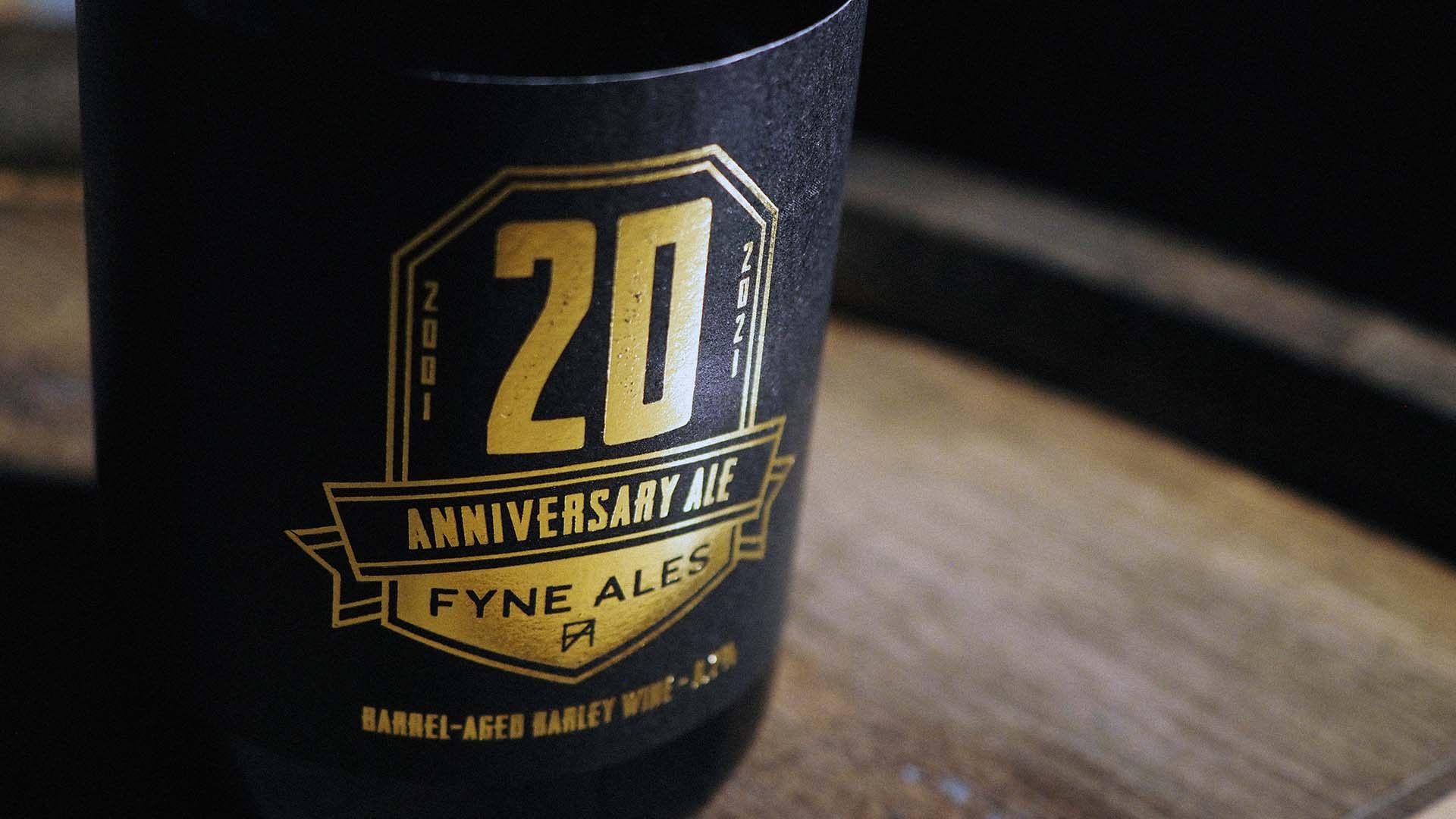
Any brewery approaching its 10th birthday (like Wild Beer Co last week) has been around the UK craft beer scene a long time, so the fact that this week’s brewery is celebrating double that milestone is a significant achievement to say the least.
Fyne Ales, as its beer name subtly hints, has reached its 20th anniversary and to mark this special occasion have released a suitably big beer. This barrel aged barleywine has been launched as a “tribute to the art of brewing”.
It’s a lot more than just that because it also showcases the skill of blending, as the beer is made up of several vintages that have been separately ageing in first-fill port, madeira and sherry barrels.
The beer pours dark mahogany with an evaporated milk coloured head. The complex aroma which is like a warm beery hug means you’ll want to dive right in.
Fyne’s description of “decadent and indulgent” is no word of a lie as the flavour is extremely rich and sophisticated. Strong notes of dates and other dried fruits, winter spices and caramel really hit the spot and, with the malty backbone, creates the illusion of a sticky toffee pudding in liquid form.
Those barrels provide additional layers of flavour with delicate hints of the fortified wines the barrels previously held interlacing with the beer. The sherry comes through most prominently as if that sticky toffee pudding has been soaked - you’ll want to light it like a Christmas pudding.
At 8.2% abv, it’s certainly boozy but avoids knocking your socks off before you’ve finished a bottle. In fact, an incredibly smooth and creamy body combined with low carbonation make it extremely drinkable.
20th Anniversary Ale is available now in 375ml bottles from Fyne Ales priced at £7.95. It’s best before December 2024 so you can see how it develops over the years.
About the brewery
As we’ve already discovered, Fyne Ales have been brewing for two whole decades and have been doing so in the Scottish highlands north of Glasgow. You’ll find the brewery at the head of Scotland’s longest sea loch, Loch Fyne.
The brewery is most well-known for its award winning flagship session blonde ale, Jarl. Fyne also runs an annual festival, Fyne Fest, which combines beer, food and music.
Wild Beer Co - Echo
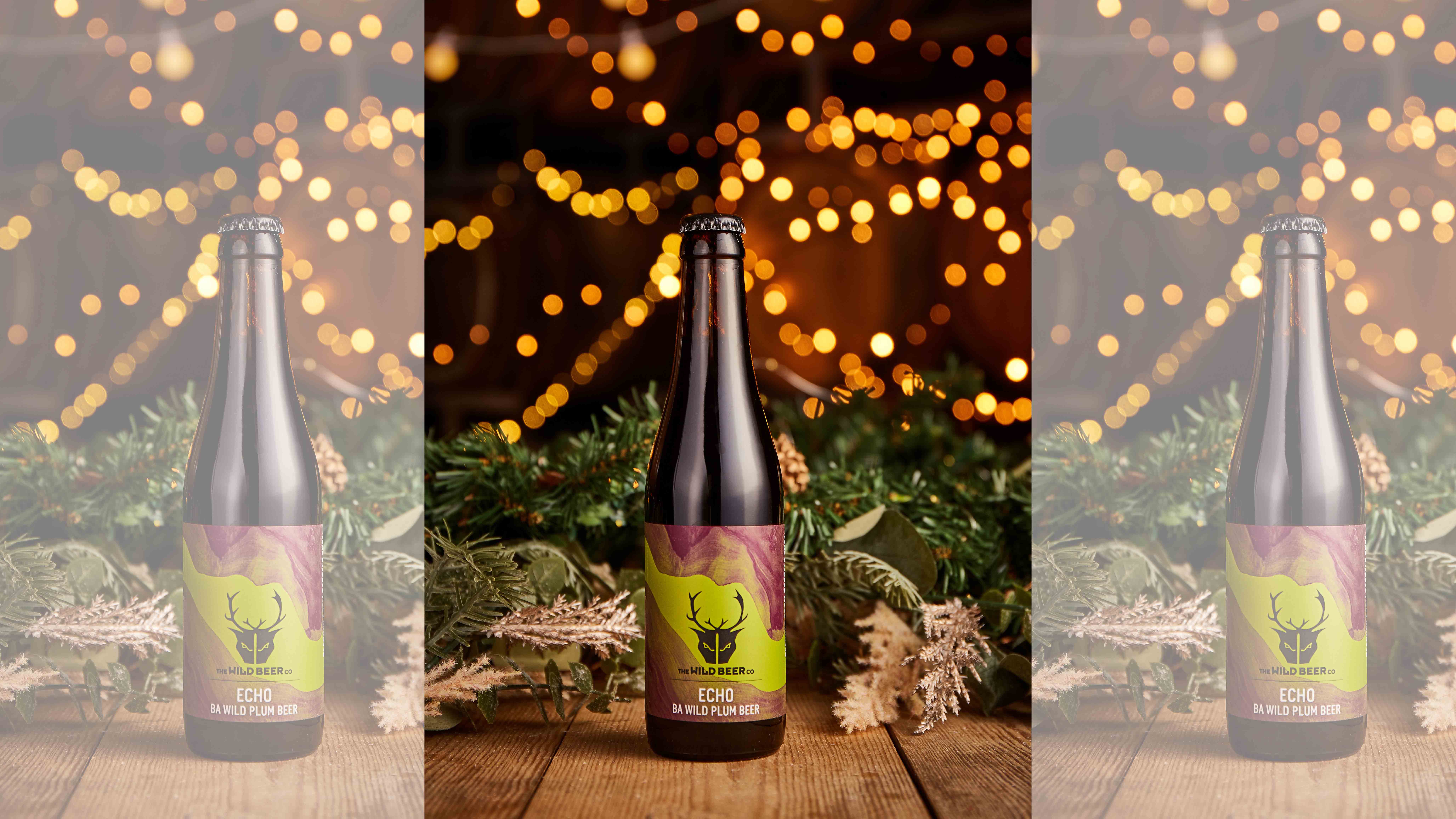
Sour beers are great in the summer but as we learned from Vault City a couple of weeks ago, they can be just as good in the colder months. This week we have another cracker and it’s from one of the most esteemed sour breweries in the UK, Wild Beer Co.
Echo started its life way back in 2017 and was aged in Sauternes sweet wine barrels after being brewed. After two years of maturation, Wild then blended the beer and transferred it to Islay barrels and added fresh plums.
Those barrels were previously used for Pilton Cider’s ‘Smokey Plum’ and Wild’s own Modus 5. It sat in these barrels for a total of 18 months before being bottled. The name Echo comes from the way it’s taken on flavours from the previous brews.
While barrel ageing is a key process in the resulting profile of this beer, its original ingredients are also important. The base beer was made with barley, aromatic malt, crystal rye and oats for depth and body.
Mandarina Bavaria hops don’t factor too much but Wild has added orange zest and rock samphire, too. It’s perhaps no surprise that a beer four years in the making is hugely complex, in both aroma and flavour.
While the smell only offers hints of the smokiness from the Islay barrels, the taste is prominently peaty. However, it’s not dominant and the beer is balanced, with a symphony of sweet white wine, tangy plums, balsamic sourness, earthy spices, toasted malt and more every time you take a sip.
It’s reminiscent of the Flanders red style and one of the most complex and bold sours we’ve ever tasted. It can be drunk fresh or aged and Wild Beer suggests mince pies as a food pairing.
Echo is available now from the Wild Beer store in 300ml bottles priced at £7.99. Alternatively, you can get it as part of a barrel aged set alongside Big Buck, a barleywine, and BABS 4, a blended imperial stout. It’s £29.99 and also comes with a notebook and Teku glass.
About the brewery
Wild Beer Co have been brewing in the heart of the Somerset countryside since 2012 - a long time ago in the craft world - and came out of founders Brett and Andrew’s love of wild fermentation and barrels.
Now they have established themselves as one of the leading and most innovative breweries in the country with a house wild yeast captured from a neighbouring cider orchard.
Moonwake Beer Co - Rye IPA
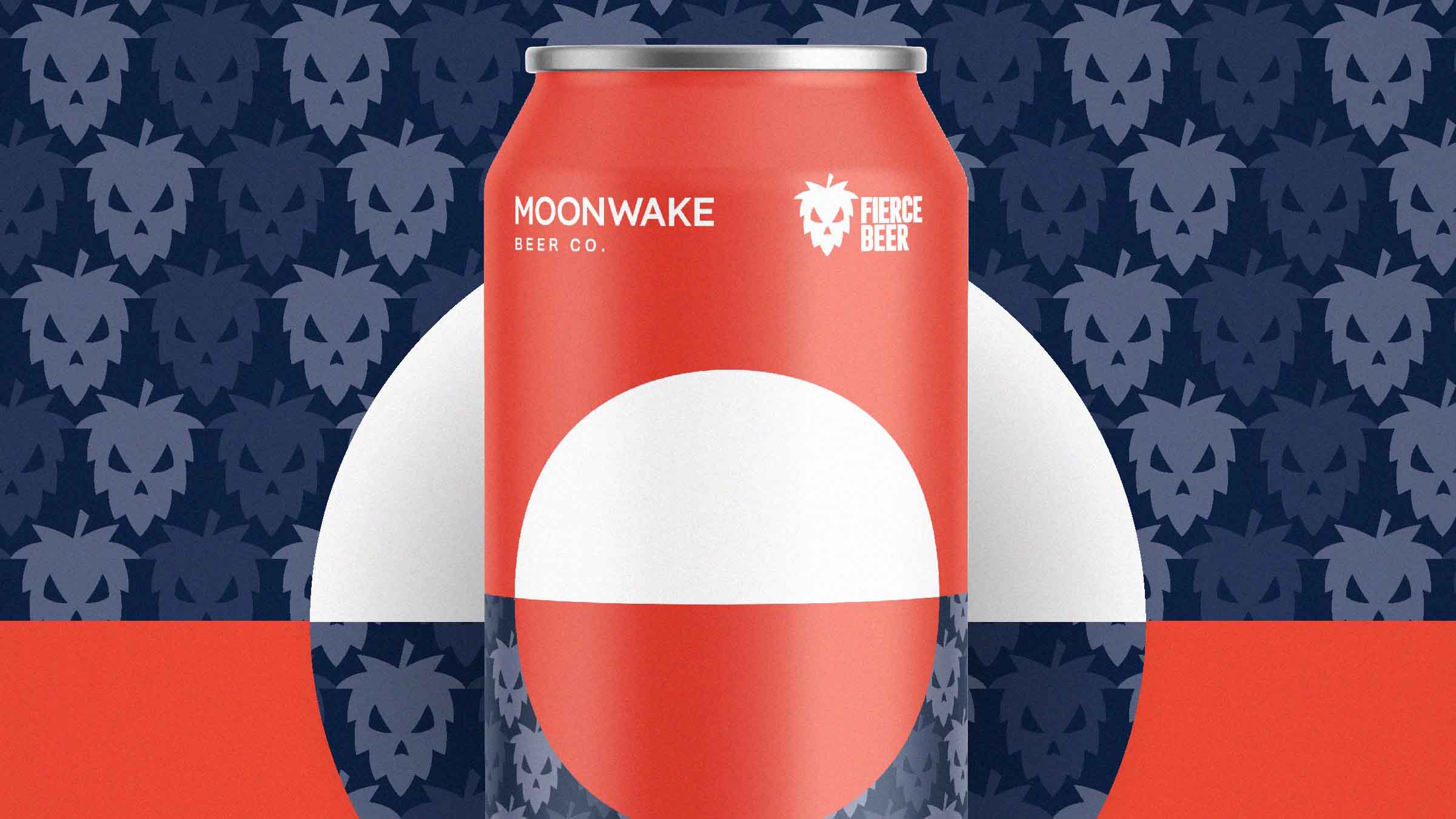
Continuing our run of seasonal beers, we have a fresh Rye IPA and, in fact, we’re staying in Edinburgh for a second week running. Moonwake is located in Leith, a short 3.5 mile drive up the road from Vault City.
The brewery is one of the newest in the UK and this beer is their first collaboration, with none other than Fierce Beer who we featured back in May.
As the name suggests, the brew includes rye (a hefty 150kg) as well as the usual barley, and the Fierce influence on this venture is the inclusion of dried orange peel which has been added during fermentation.
The rye not only brings a darker colour to what would otherwise be a typical looking IPA - a deep marmalade orange in this case - but earthy and spicy flavours that make it very autumnal.
A complex malt backbone is complimented and contrasted by generous hop bill of Calypso, Ekuanot and El-Dorado. There’s a firm yet balanced bitterness, aided by that orange peel, giving a punchy citrus grapefruit tone alongside rich tropical aromas of pineapple and stone fruit with a herbal edge.
It’s 5.5% abv and very smooth making it just about sessionable enough to enjoy a few with the fireworks. Also watch out for a reciprocal at Fierce where the same recipe will be amped up in abv, adjuncts will be included (other than rye and orange) and dry hopping will include more than just hops.
Rye IPA is available now from Moonwake’s online shop priced at £4.40 per 440ml can. You’ll also find it pouring on draught from the brewery’s taproom and Fierce bars in Edinburgh, Aberdeen and Manchester while kegs last.
About the brewery
Founders Fin and Vinny started off their beer careers on opposite sides of the globe, the UK and New Zealand respectively. And although Moonwake is new - less than two years since securing a premises - the pair bring over a decade of brewing experience to the table.
Sarah, who is in marketing and events, plus Wesley working in sales round out the small team with the brewery aiming to “create an open, creative space and culture where we can brew impressive beers with precision”.
Previously on beer of the week
Vault City - Blueberry Pumpkin Spiced Latte
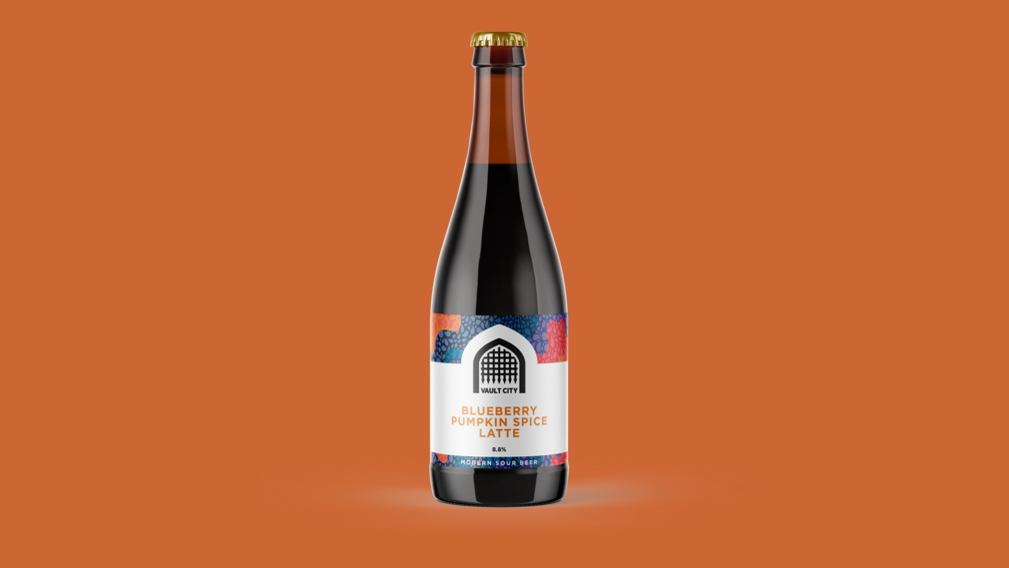
Thanks to the innovation and experimentation of the craft beer industry, pumpkin beers needn’t just be brown ales with fruit and/or spice added - as our beer of the week proves
With Halloween taking place this weekend we thought it fitting to put a pumpkin beer to the test, even though they are pretty rare compared to the US.
Vault City is no stranger to throwing bold flavours at a beer and this is a great example. The Scottish brewery has made one of the more unusual autumnal options.
This has no actual pumpkin involved so, as the name suggests, it’s just the spices you’d expect to find in a traditional pumpkin pie.
There is fruit in the mix though: blueberry, a fruit known to work particularly well with Vault City’s house mixed-culture. This is a sour beer but the addition of creamy lactose sugar is where the ‘Latte’ part of the name comes in, although there’s no coffee flavours.
Pouring a rich, deep purple colour with a thick light pink head, the blueberry is prominent in more than just flavour. At 8.8% abv, it’s nicely boozy and has a lushious, silky mouthfeel.
The tart fruitiness and mixed-culture is balanced with the vanilla sweetness of the lactose and the pumpkin spice mix brings a mulled cider vibe. It’s like drinking a tart fruit crumble with some sweet vanilla ice cream on the side. Who knew a sour beer could be so cosy?
Blueberry Pumpkin Spiced Latte is available from Vault City in 375ml bottles priced at £7.75. You’ll also find it from various bottleshops, and if you’re looking for more pumpkin beers then look to breweries such as Elusive, White Hag, S43, Werewolf Beer, Bridgehouse Brewery and Abbeydale, who have no less than two to choose from.
About the brewery
You’ll find Vault City in the Portobello suburb of Edinburgh, one of the UK’s most booming cities in terms of craft beer. They are one of a handful of breweries in the country that specialise in sour beer, although dabble in other styles on occasion.
They have only been around since 2018 and typically make fruit-forward beers with anything from Peach to Honeyberry - some even have glitter in! Vault City are currently constructing an on-site tasting room and bottleshop.
Fuller’s - Vintage Ale 2021
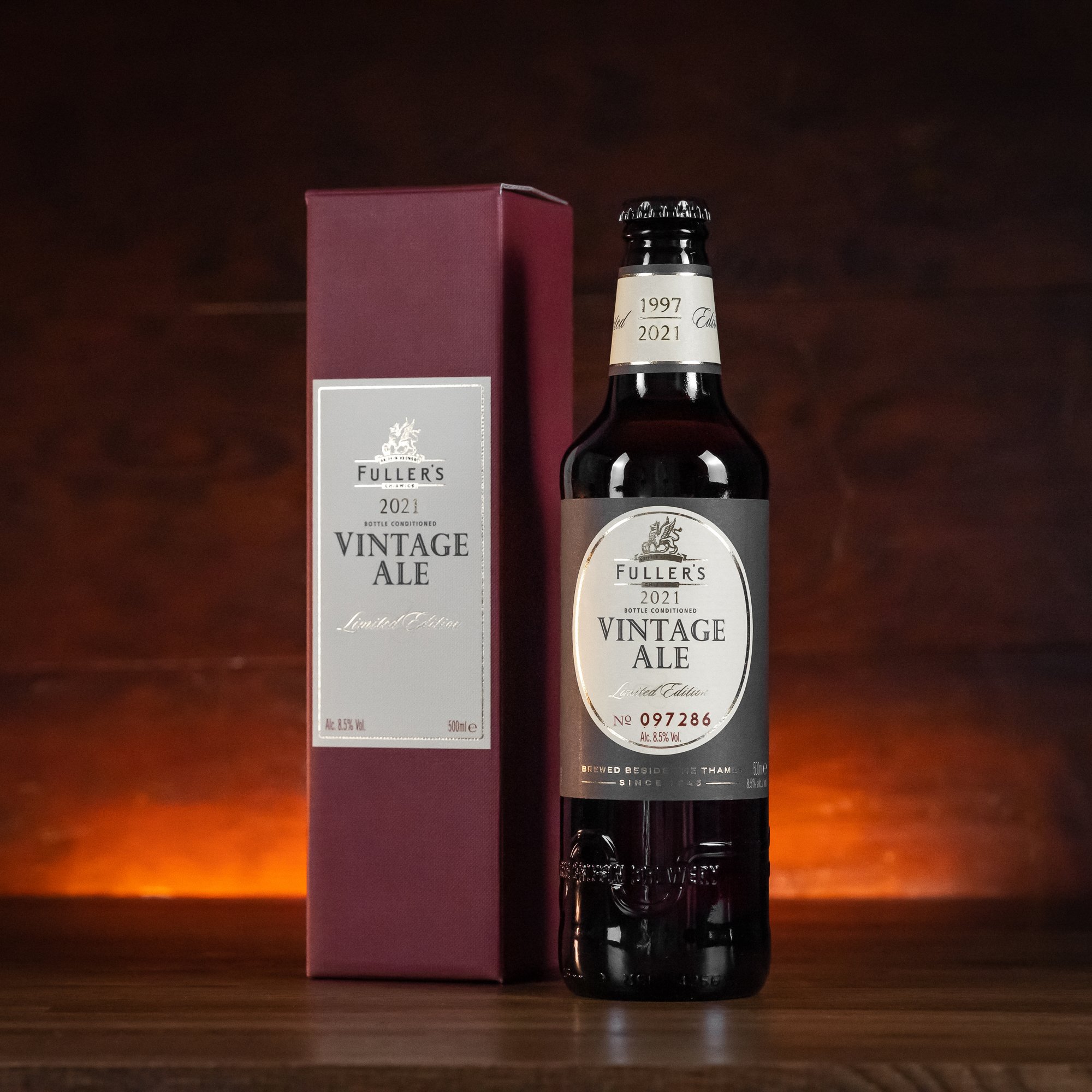
From one vintage ale to another, and although this week’s beer hasn’t been aged for six years that doesn’t make it any less delicious.
Fuller’s is one of the most well-known breweries in the UK and 2021 represents a big milestone for this iconic beer which is now in its 25th year. The London brewery makes it annually and calls it the most special beer to leave the grounds.
This barley wine style strong ale is a limited edition with each bottle carrying a unique number on the label. Each year the recipe is also different meaning each expression has its own character.
At 8.5% abv, Vintage Ale brings a boozy warmth perfect for this time of year as the nights draw in. If you don’t have a log burner to drink this by then you’ll no doubt start saving for one next year.
Though boozy, it drinks very smoothly and has rich autumnal flavours. This year Fuller’s have combined pale ale, Caragold and DRC (double roasted crystal) malts to provide a robust backbone of biscuit, fresh bread and sweet toffee flavours.
When it comes to hops, the brewery has decided to showcase a range of newer varieties from the UK in the form of Olicana, Endeavour and the experimental CF182. Aromas of strawberry lace sweets and citrus rind lead to flavours of plum and blackberry jam, brandy-soaked cherries and hints of tropical fruits and spices.
While the flavour is delicious right now, Fuller’s has made Vintage Ale to be kept. It’s bottle conditioned and the profile will mature over time. This beer is also a potential investment as the value increases after just one year.
A 2015 Vintage Ale on the Fuller’s store, for example, will set you back £50 but you can grab the new 2021 edition for £6 a bottle. It comes in 500ml bottles in a smart presentation box.
About the brewery
Though one of the beers, 1845, denotes when Fuller, Smith & Turner officially founded the Fuller’s brand, the site in Old Chiswick has been making beer since the 17th century.
It was in 1816 when the Griffin Brewery and emblem was acquired while it was under the ownership of Douglas and Henry Thompson. They snapped up the chance after the brewery on Liquorpond Street went under.
Innis & Gunn - Vintage
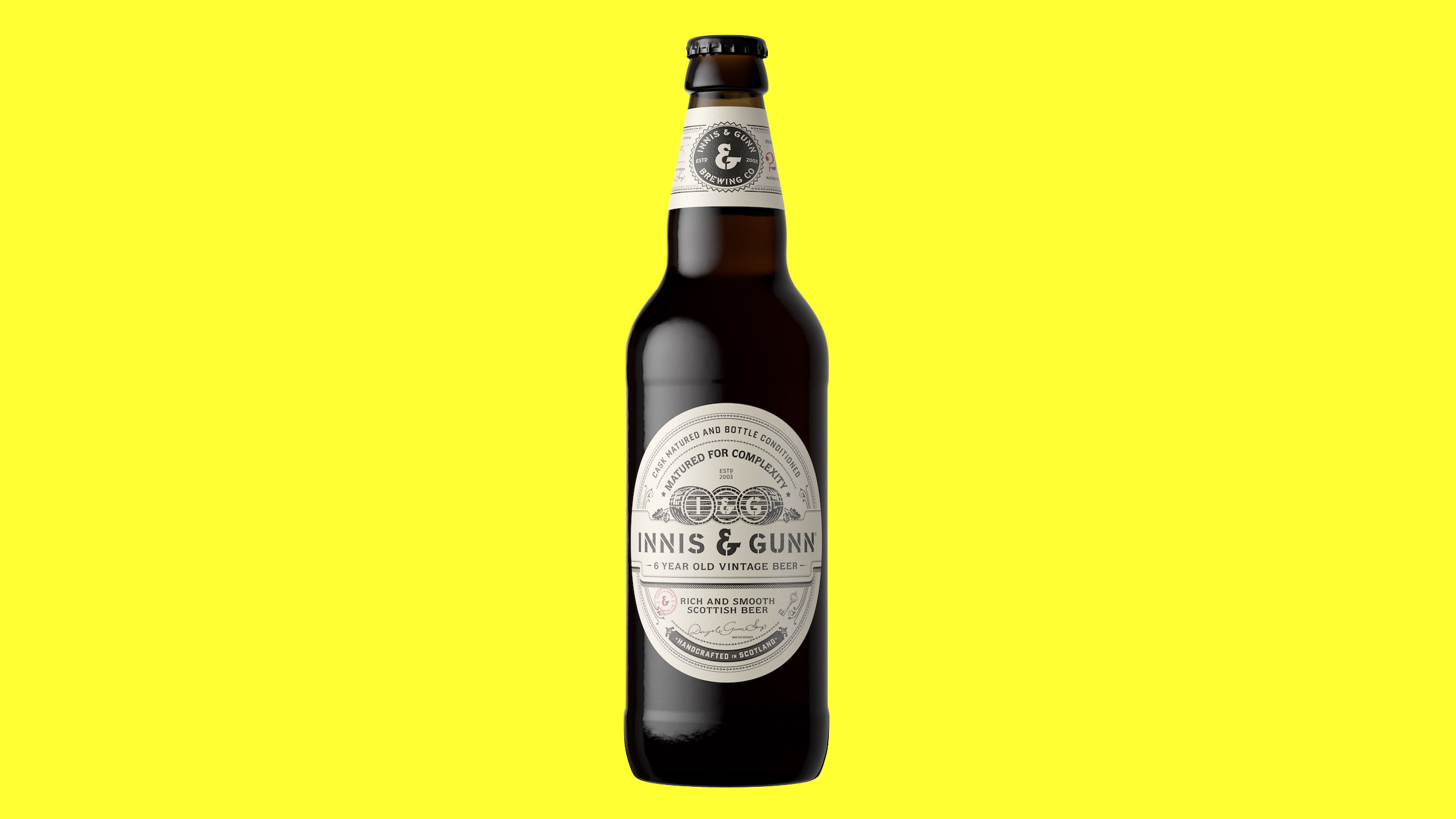
It can often be only a matter of days between the brewing of a beer and its consumption, but today’s beer has been no less than six years in the making. So it’s more than worthy of the name Vintage.
The Scottish brewery is well-known for barrel ageing, and this particular beer has spent a total of 100 days in 183 first-fill American Bourbon casks. It’s then been bottle conditioned for a further six years making it the oldest beer Innis & Gunn have ever released.
With such a long time to mature, the beer is quite lively due to secondary fermentation in the bottle so be careful when you open it. Once it’s in the glass it’s a deep brown verging on black, although if you hold it up to the light Vintage is ruby red.
This strong ale weighs in at a hefty 9% abv and has strong chocolatey, biscuity aromas similar to an imperial stout - the booze very much making itself known before you’ve even taken a sip.
It’s no surprise that a beer of this age and strength offers up a complex and rich experience starting with a silky sweet and boozy hit. This develops into a cacophony of brandy soaked Christmas cake flavour: plenty of dried fruits, spices and molasses.
Although that’s the dominant flavour, keep taking sips and you’ll get something new each time - vanilla, oak, orange zest, coffee, caramel and more are all mingling.
It’s rare to find a beer that’s been aged this long before release and it’s also a limited edition with only 1,000 bottles available. To this end, it’s priced at £25 for a 500ml bottle and comes in a presentation tube.
With six years under its belt, it’s ready to drink now - we enjoyed it with beef shin casserole - but you can age it even further if you wish. We’d be surprised if you can keep it past Christmas, though.
About the brewery
Innis & Gunn was founded back in 2003 by Master Brewer Dougal Gunn Sharp and is now the third biggest craft beer brand in the UK-off-trade having been one of the breweries to pioneer cask maturation.
The company is currently building a new brewery in Edinburgh and will be the first large-scale brewery to be built in Scotland’s capital for 150 years. For now, the 20,000HL brewery in Perth continues to operate.
Pastore Brewing and Blending - Colazione Abbondante
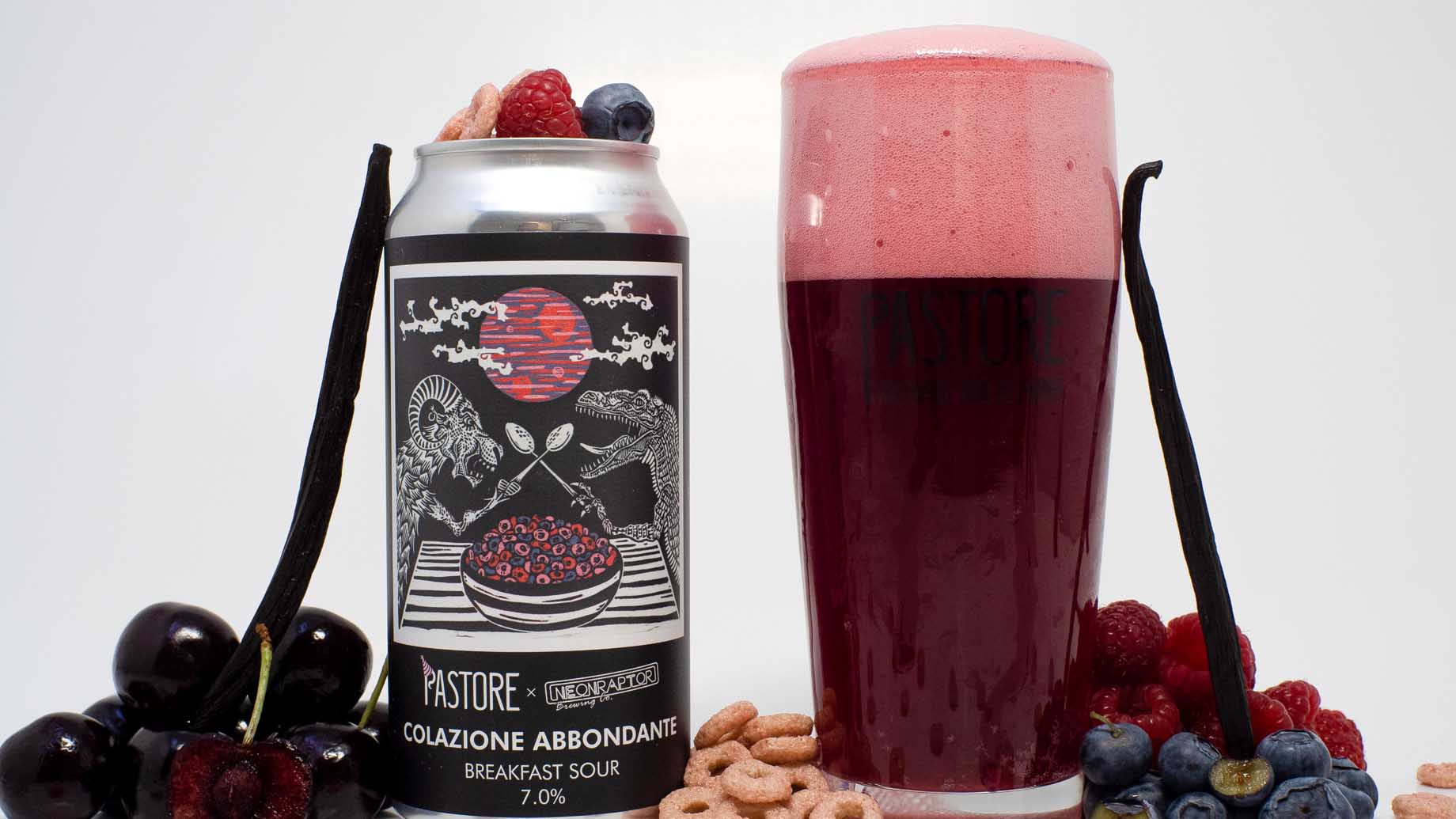
From the pudding beer of last week we move to a breakfast beer for this week’s tipple. Colazione Abbondante is a mixed culture breakfast sour but you don’t have to drink it with your toast or cereal, of course.
Especially when you consider that it’s 7% abv. It’s been brewed in collaboration with Nottingham’s Neon Raptor who are no strangers to unusual sours. We love the artwork humorously depicting the respective mascots dueling over a bowl of cereal with spoons.
Colazione Abbondante translates from Italian as ‘abundant breakfast’ and is a fitting name for this brew. For starters, the brewery has used actual breakfast cereal in the mash in addition to flaked oats, wheat, rice and maize, plus oat milk added during the boil.
The cereal adds sugar to be fermented later and the oat milk provides silky texture and mouthfeel.
Pastore (pronounced ‘pas-tor-ray’) have then fermented and soured the beer with their house mixed culture of Hornindal Kveik and Lactobacillus before conditioning it on vast amounts of fruit puree. There’s blueberry, cherry and raspberry.
And we’re not done yet as almond, hazelnut and vanilla extracts have been added, too.
As you can see, the beer pours a deep aubergine colour with a vibrant pink head, smelling of tart fruits. The trio of fruits are the stars of the show in the flavour with the vanilla providing a bit of sweetness to balance the acidity with hints of nuttiness on the finish.
If you like the idea of a breakfast fruit parfait smoothie in beer form, although understandably not as thick, then Colazione Abbondante is the one for you. You can grab it from the brewery on its own or via the web store in mixed packs, as well as via bottleshops including Beer Merchants and Premier Hop.
About the brewery
Founded by father and son team Ben and Chris Shepherd, Pastore is fairly new on the UK craft scene with Colazione Abbondante being one of their 2nd anniversary beers.
Pastore means Shepherd in Italian and the team specialises in fresh and aged sour and wild beers from their 10BBL brew kit in Waterbeach, just outside Cambridge.
Tempest Brewing Co - All The Leaves Are Brown
